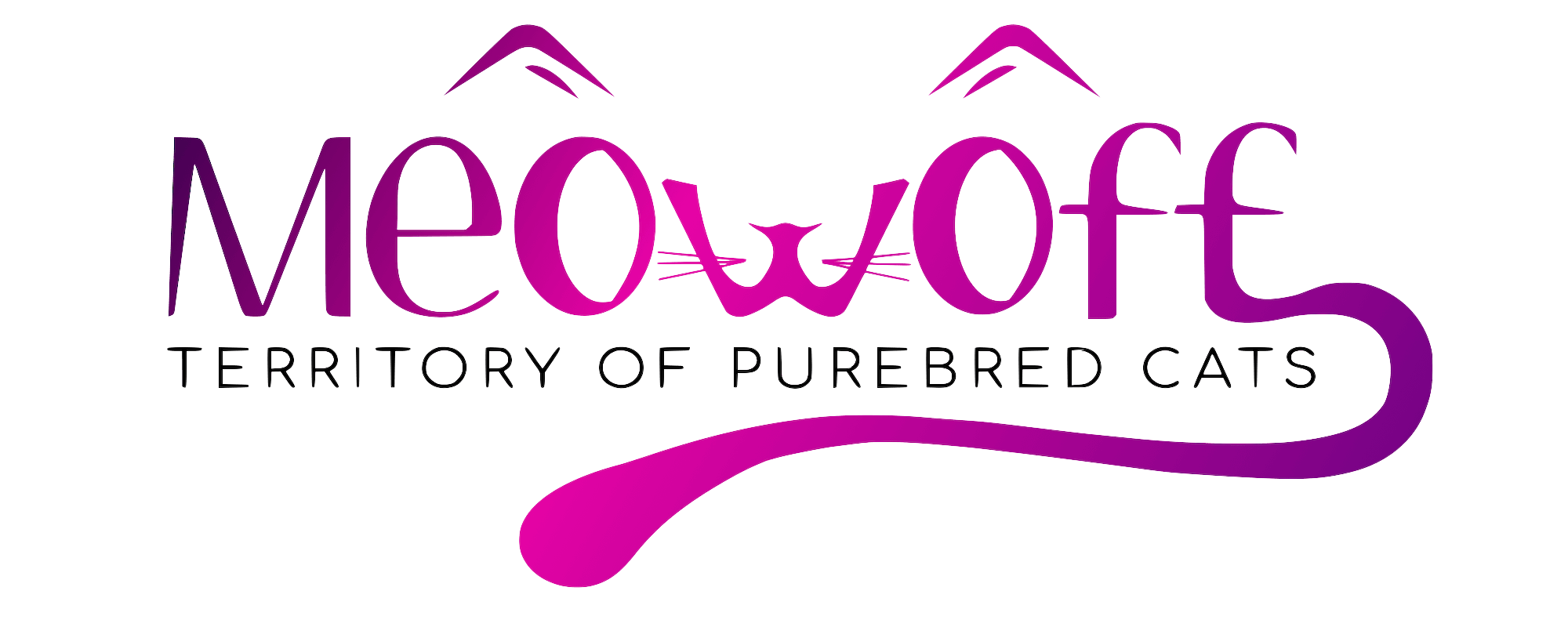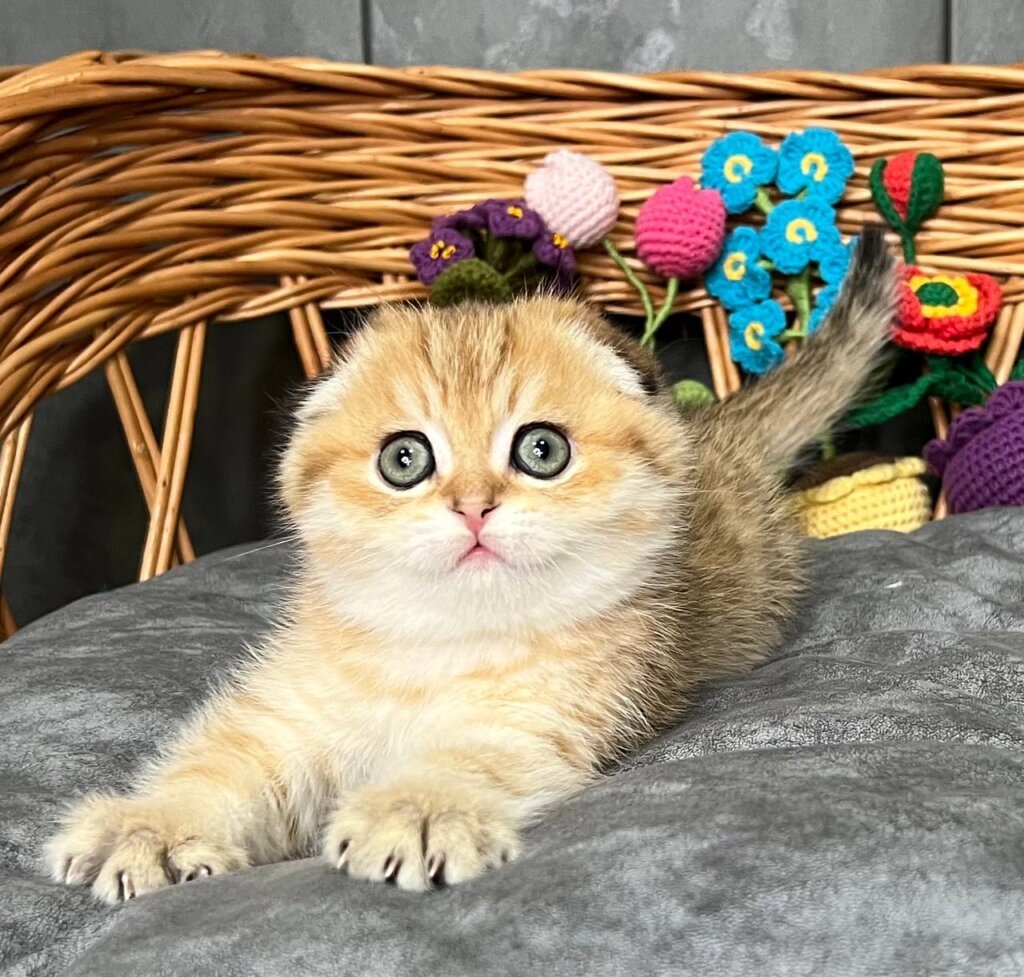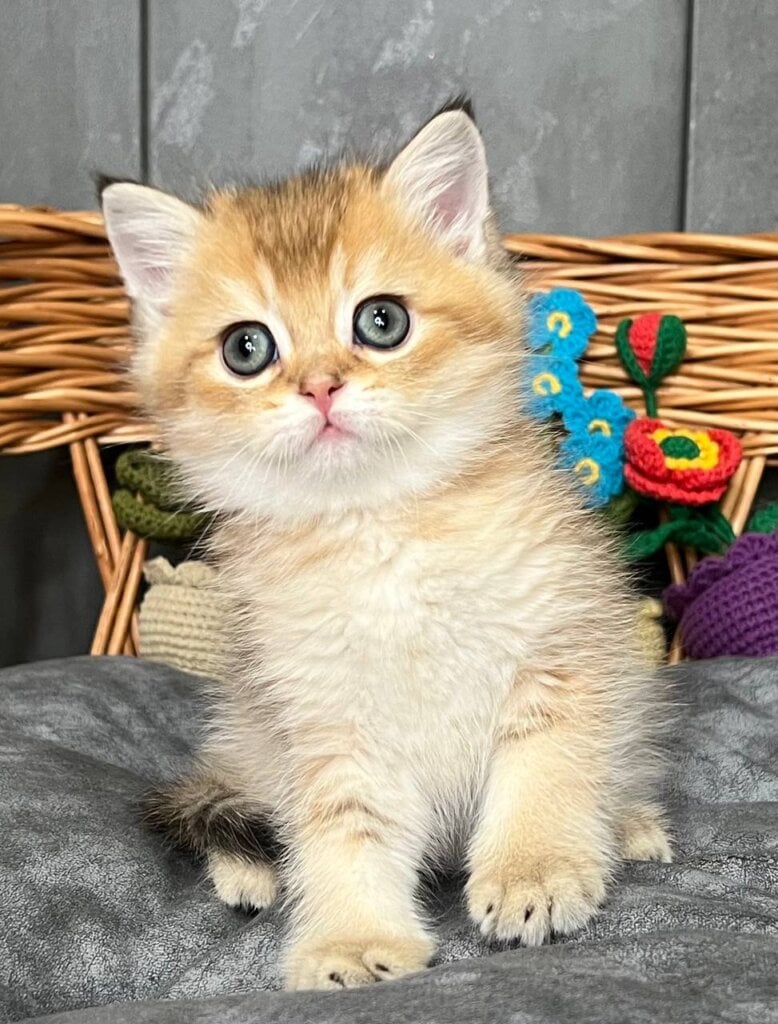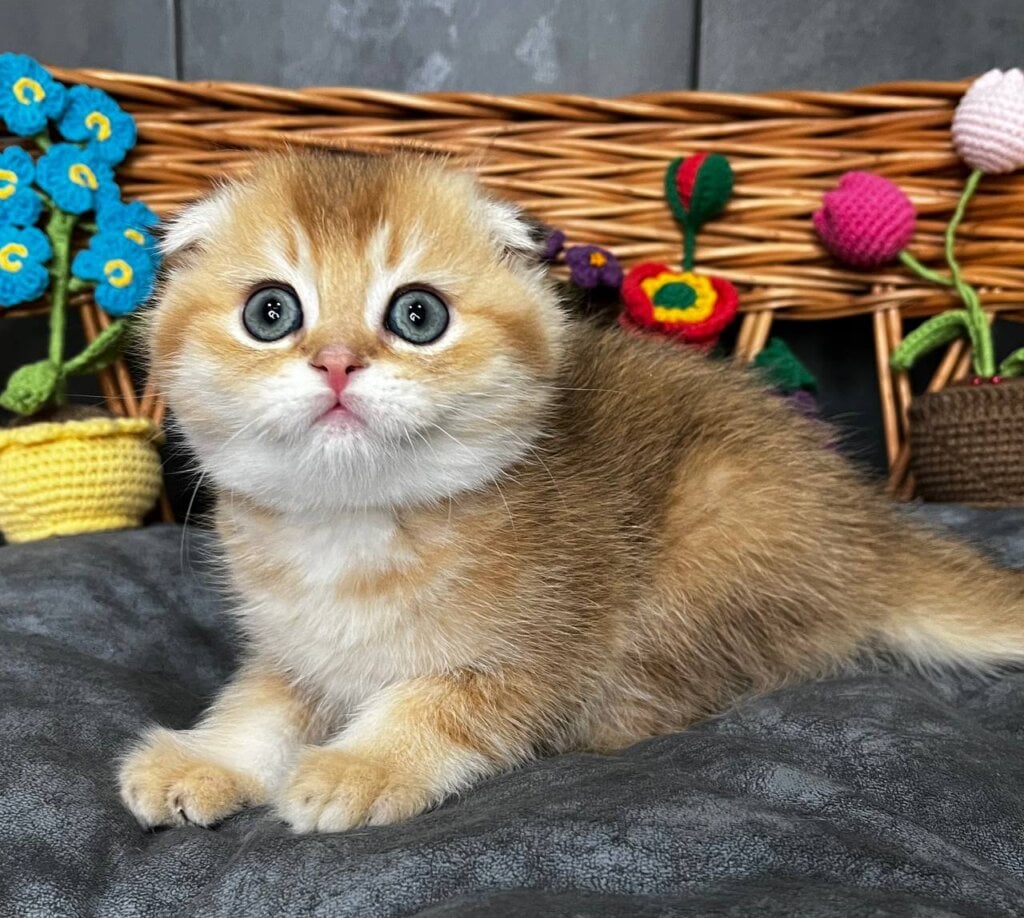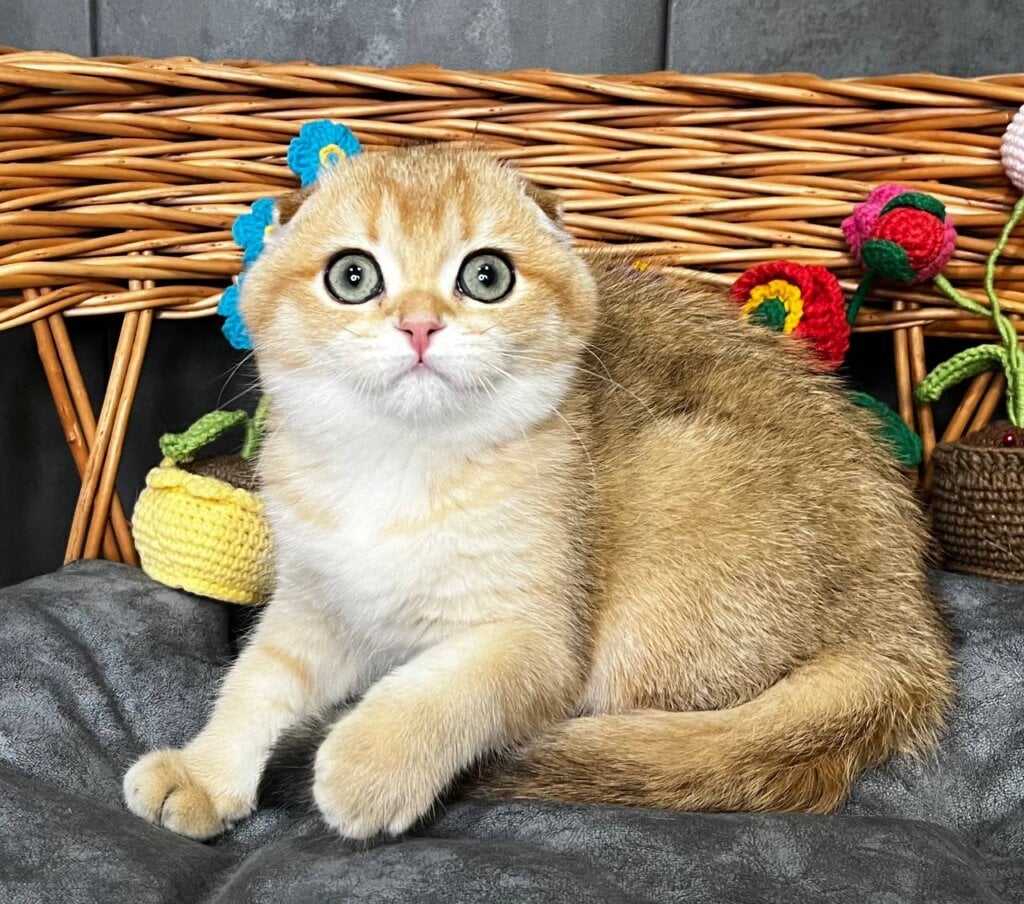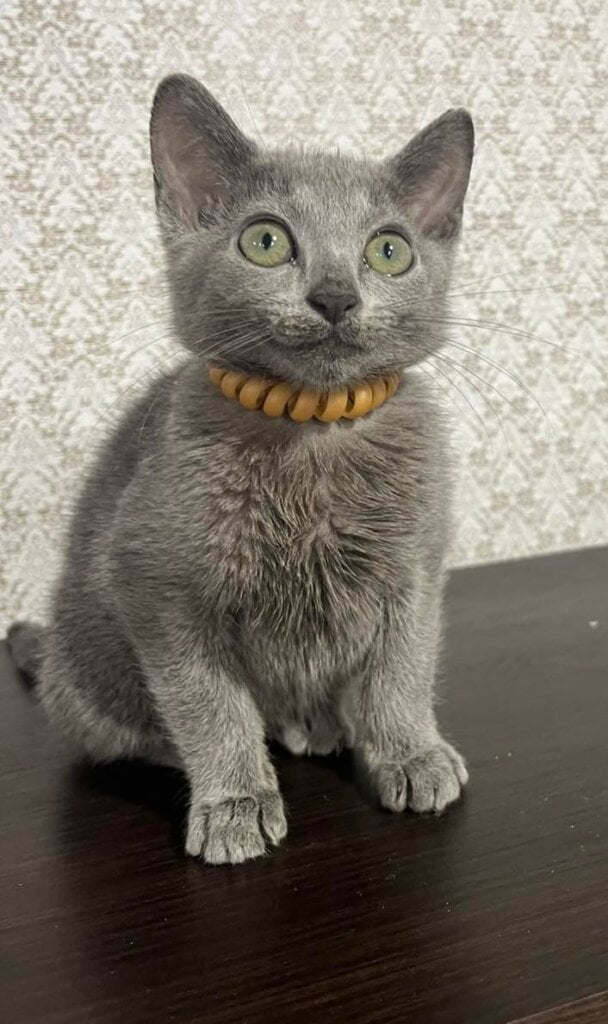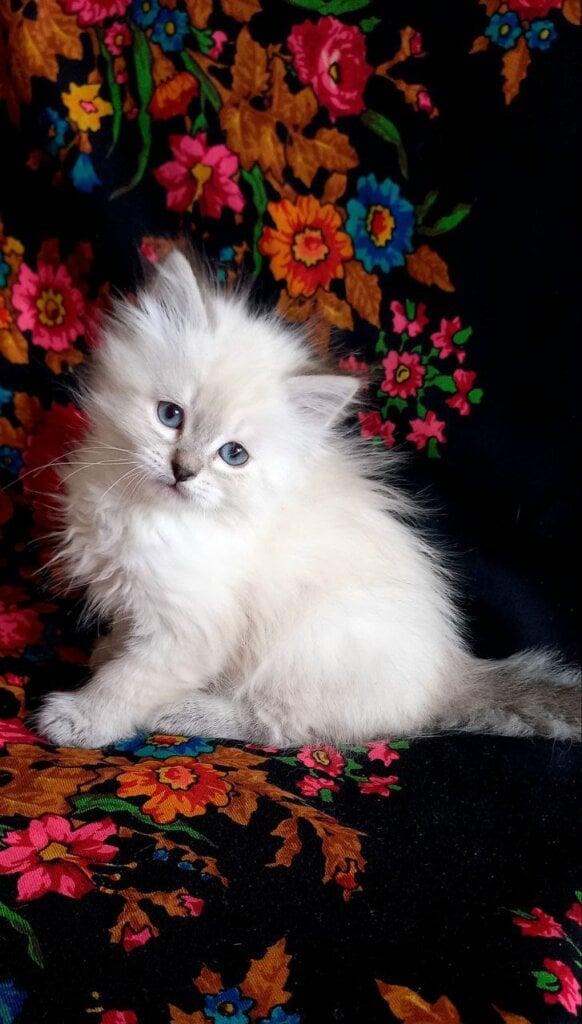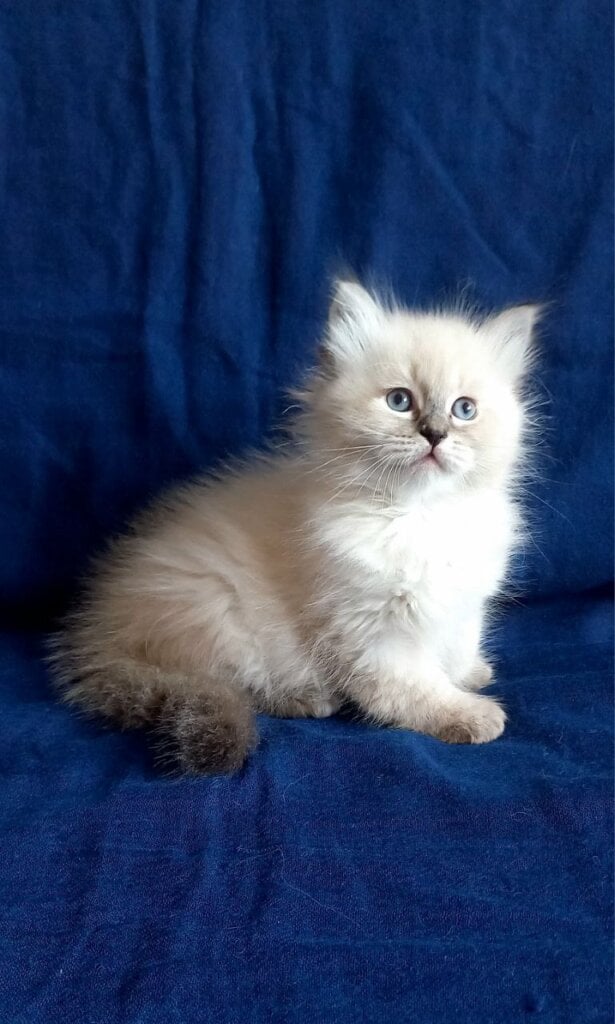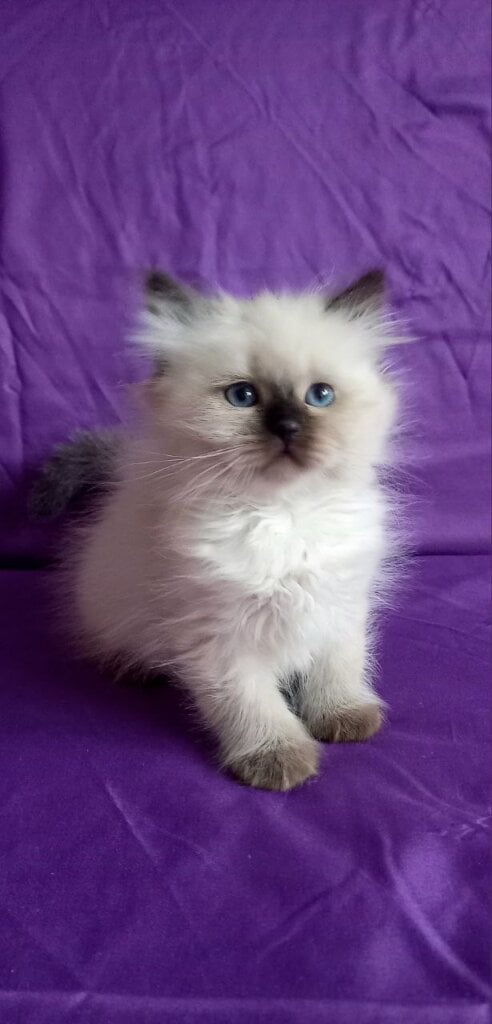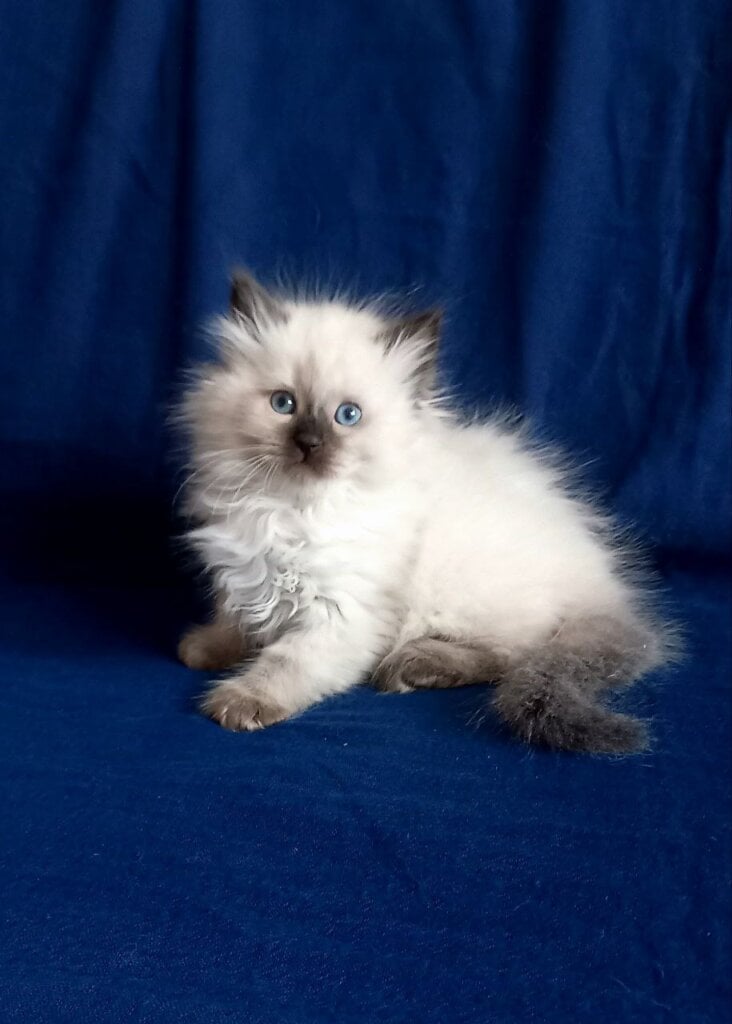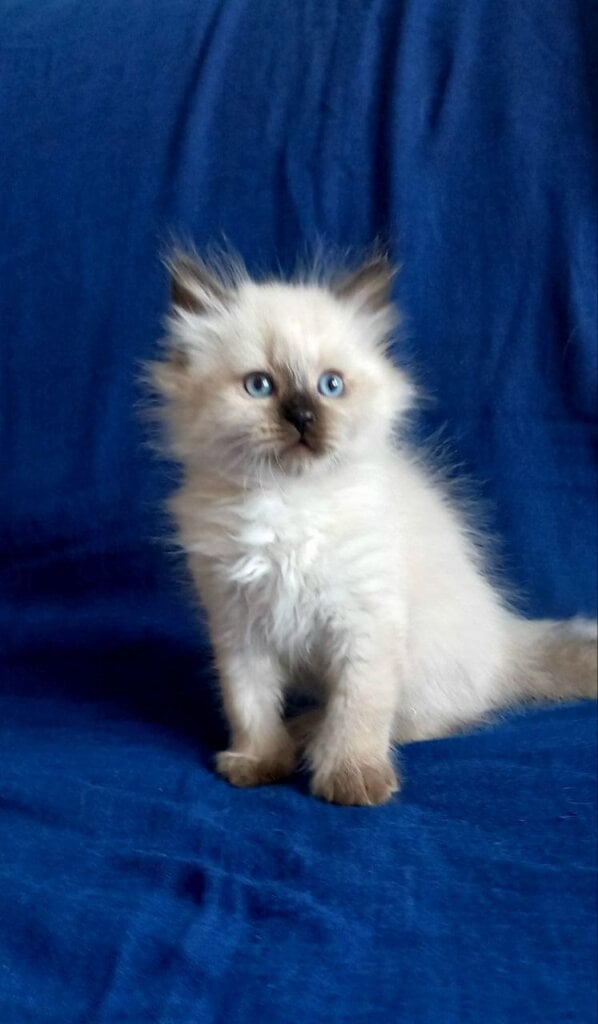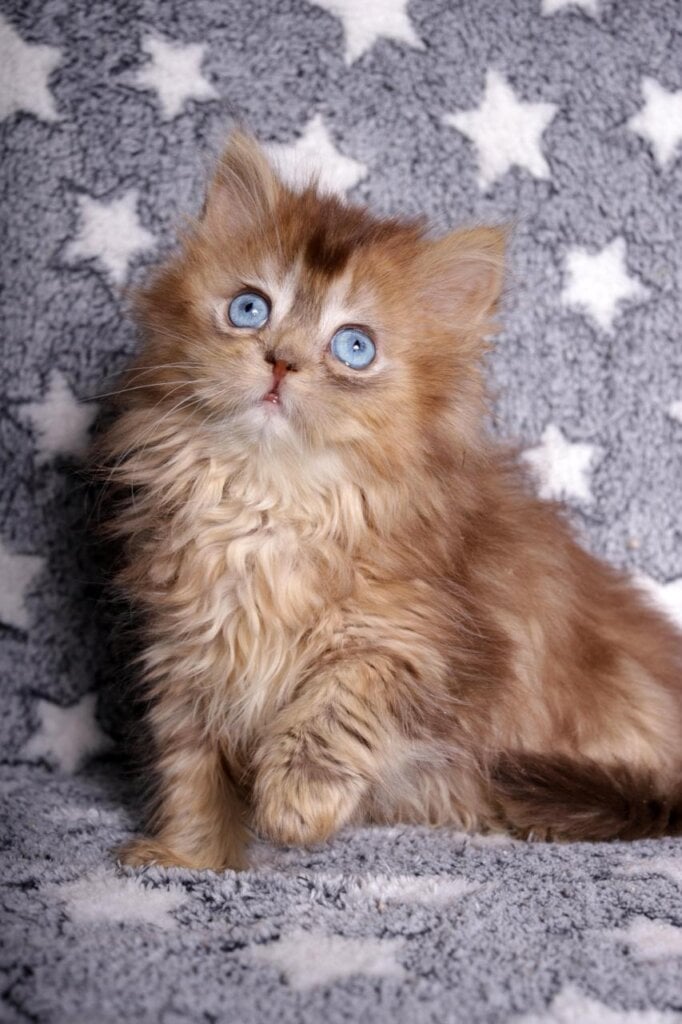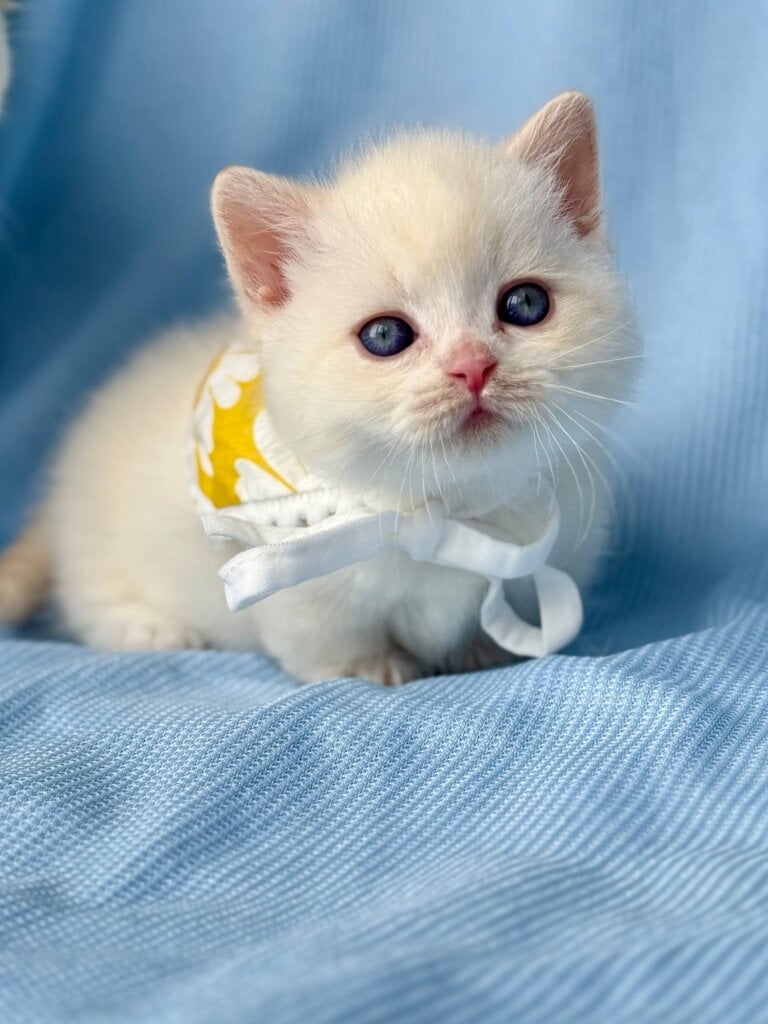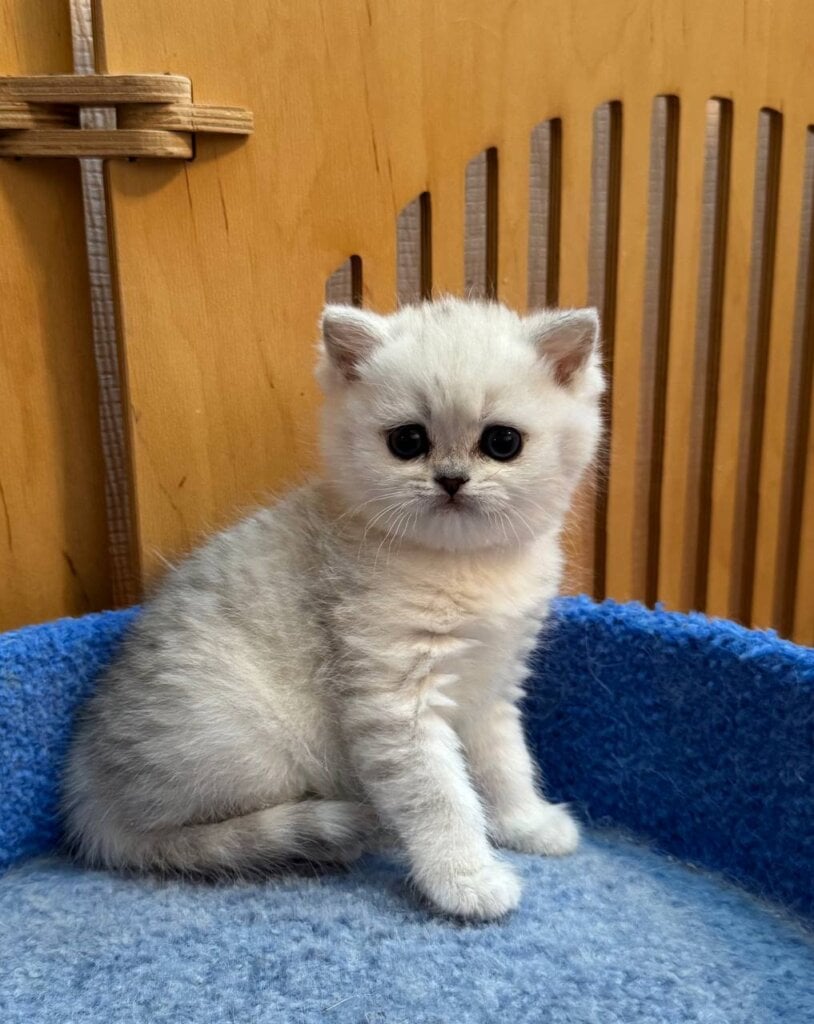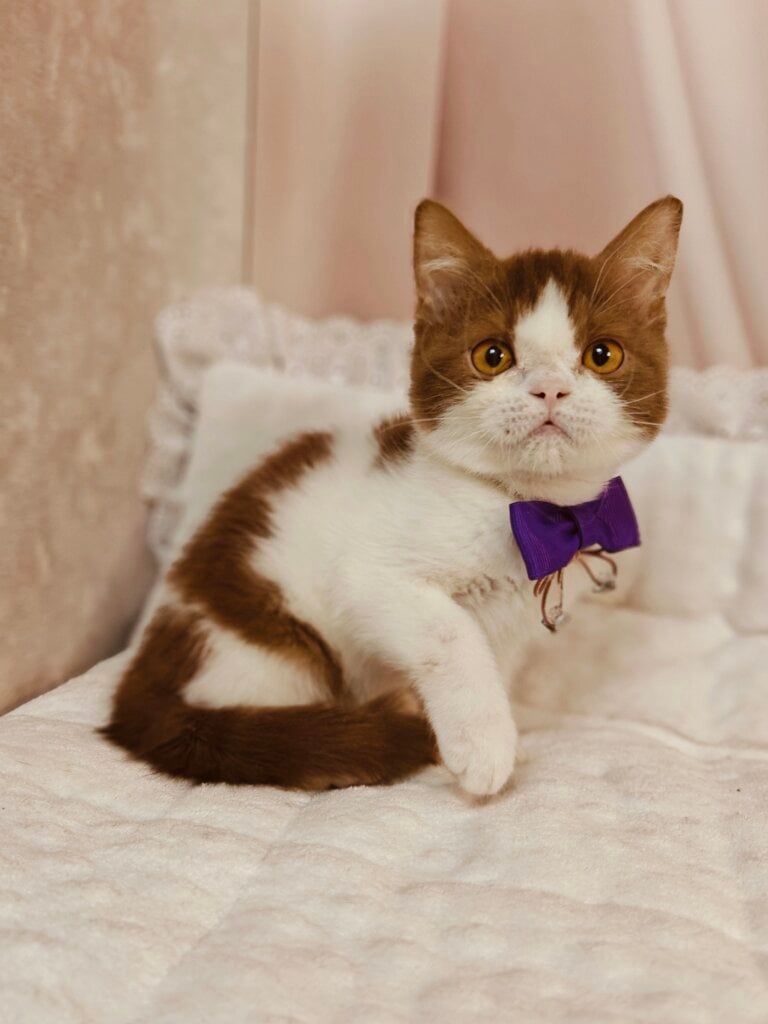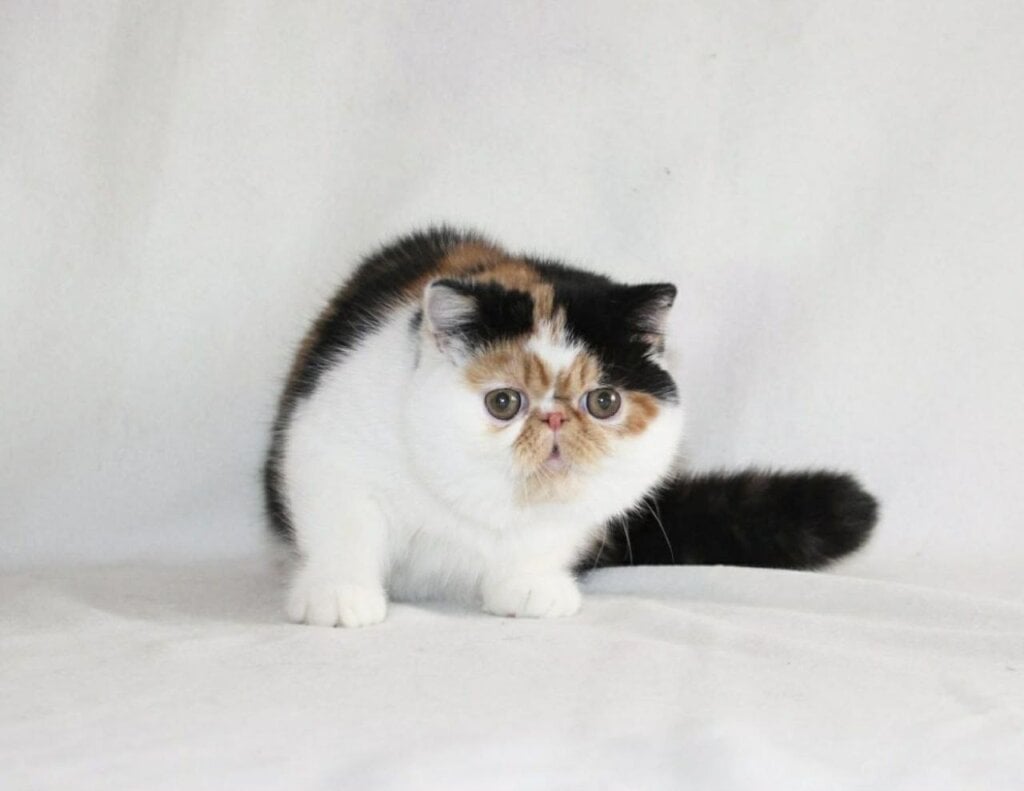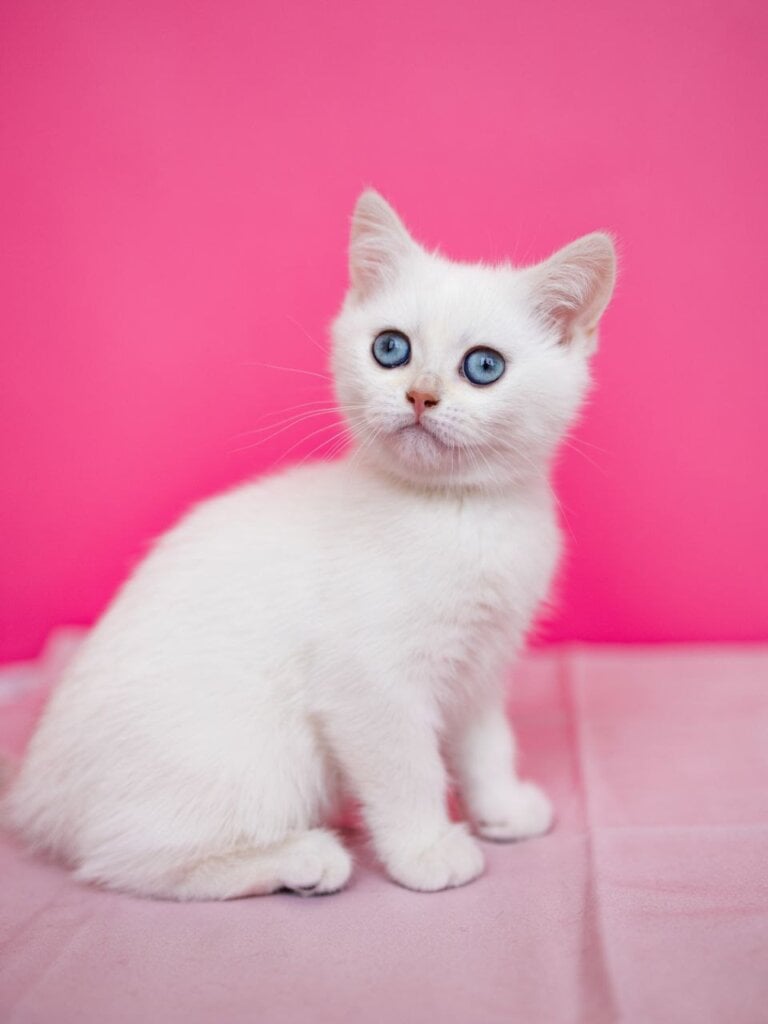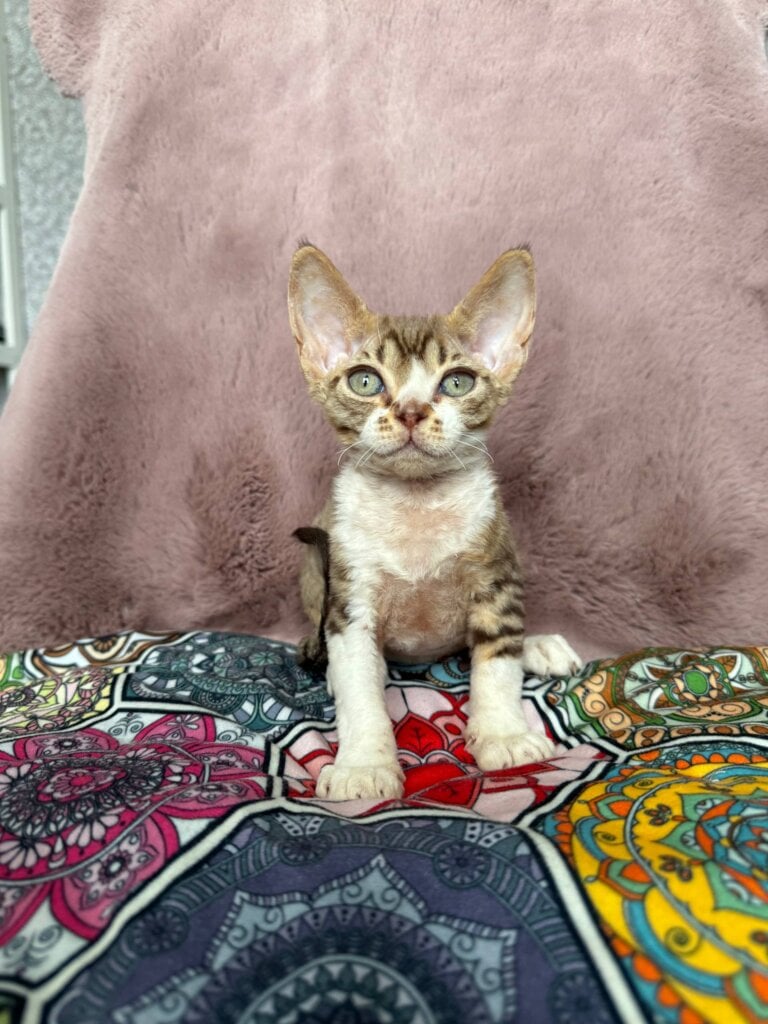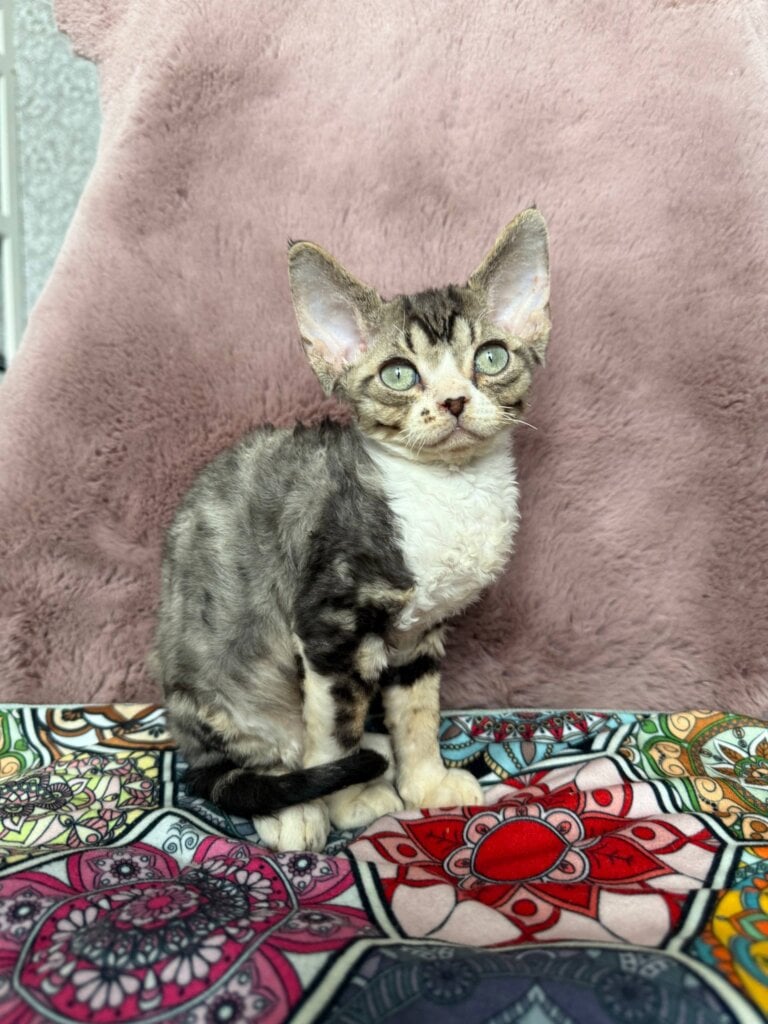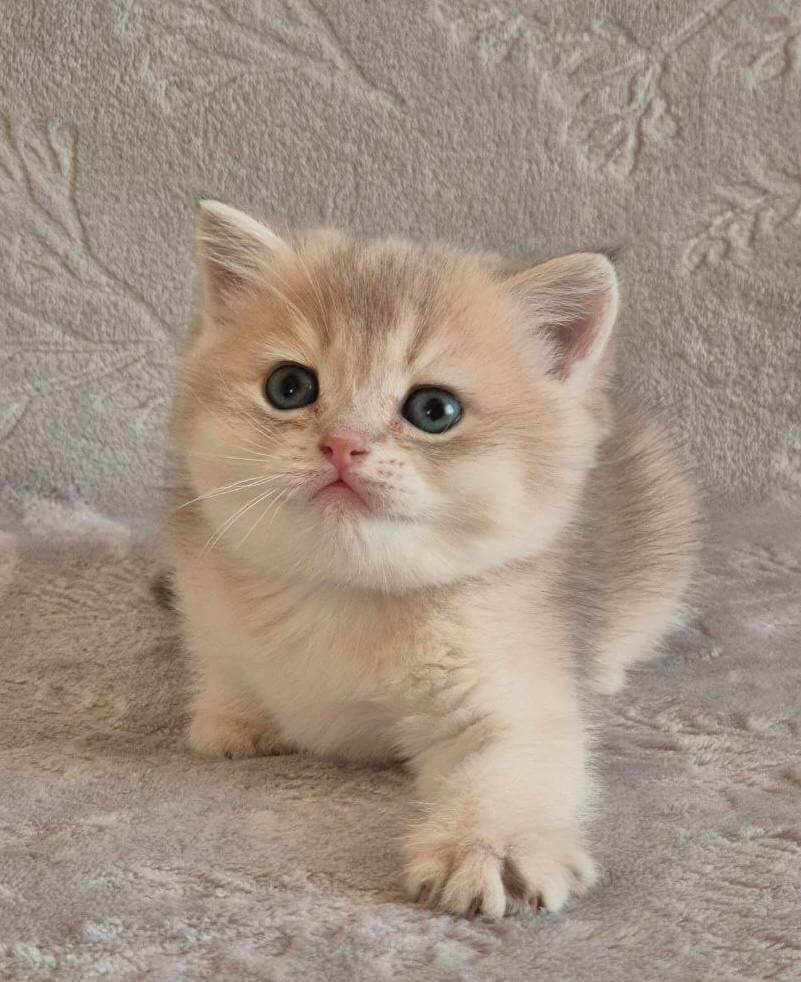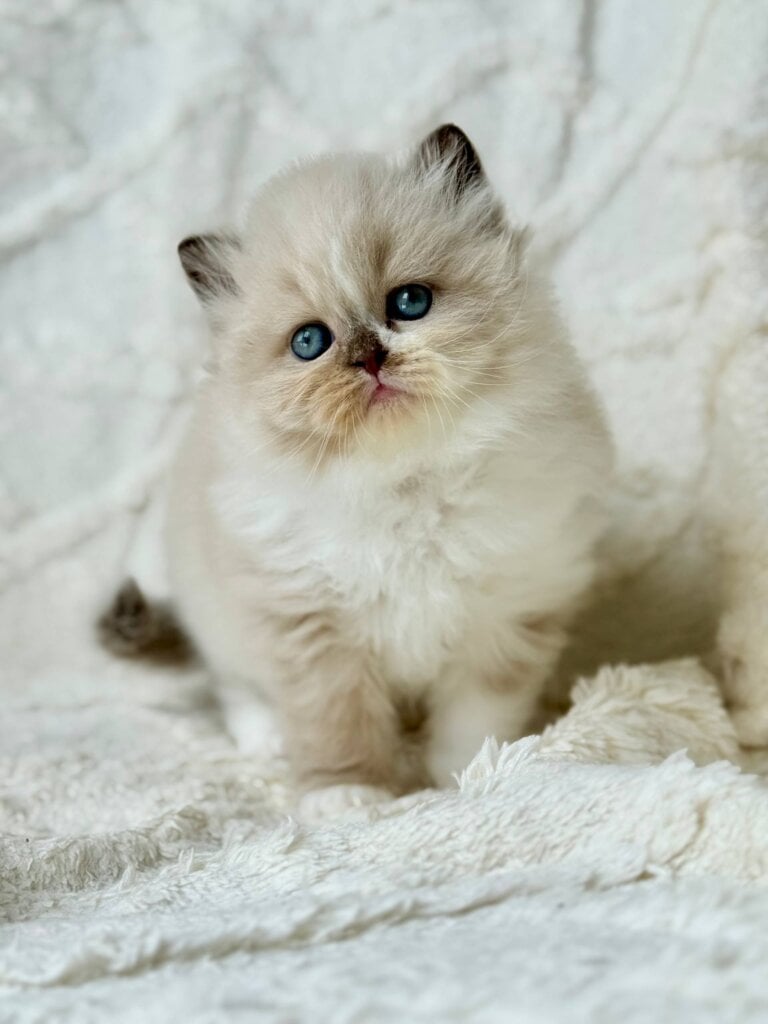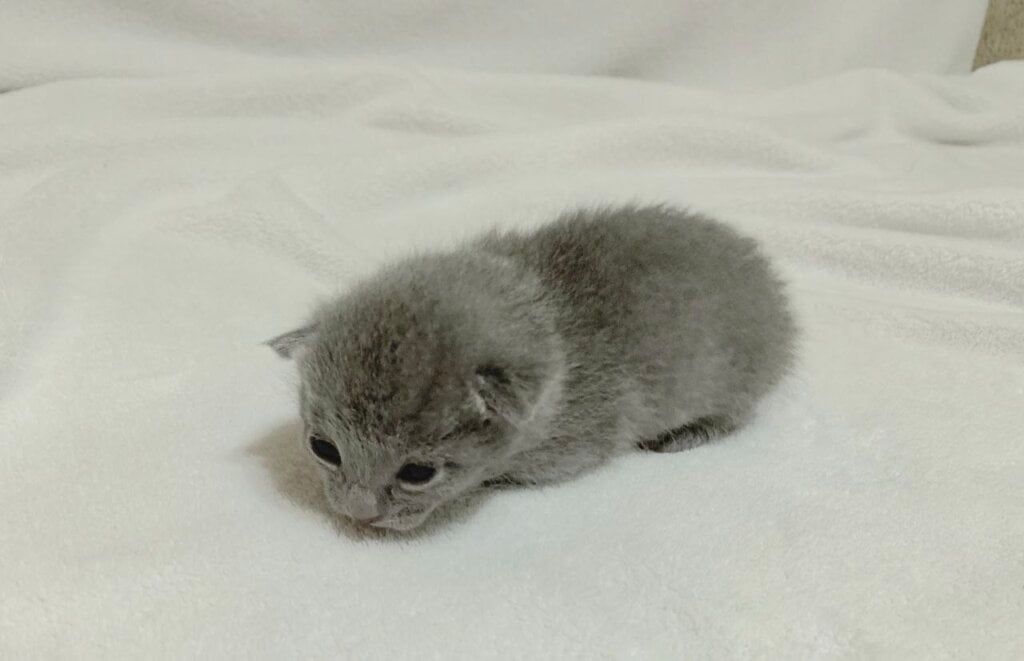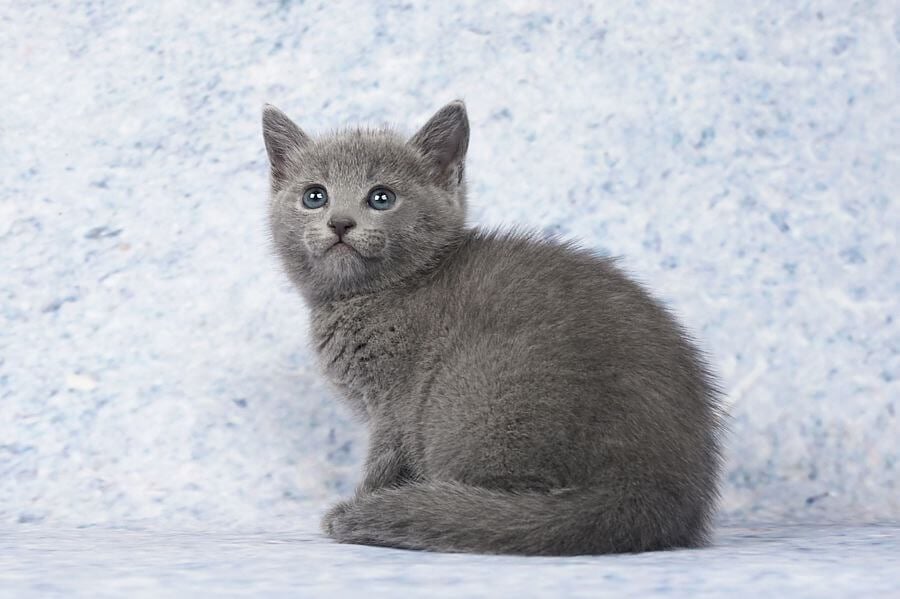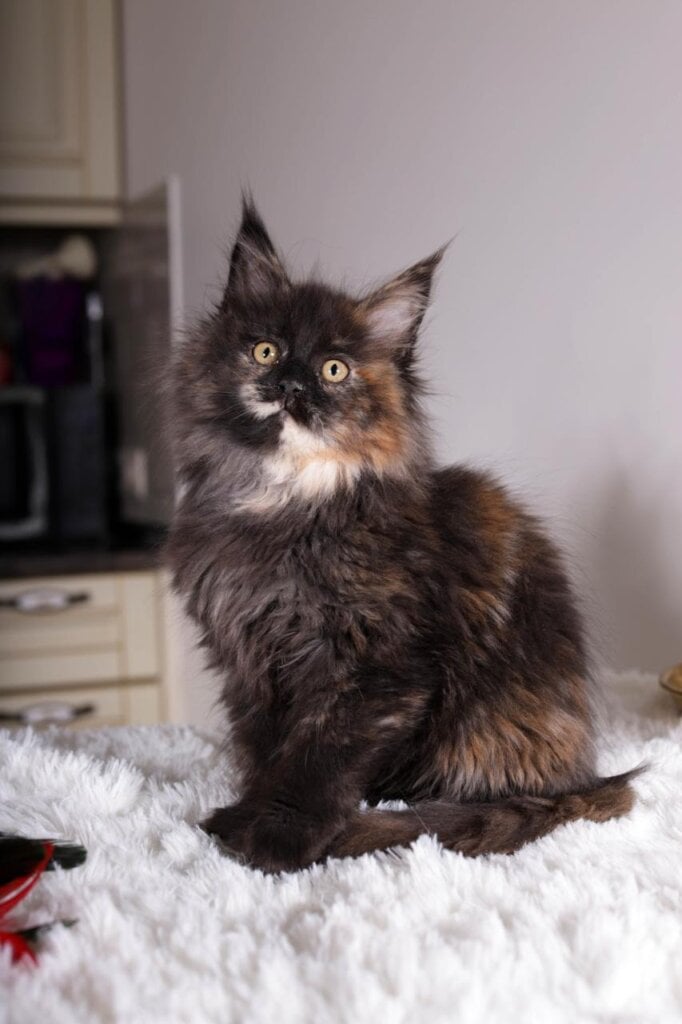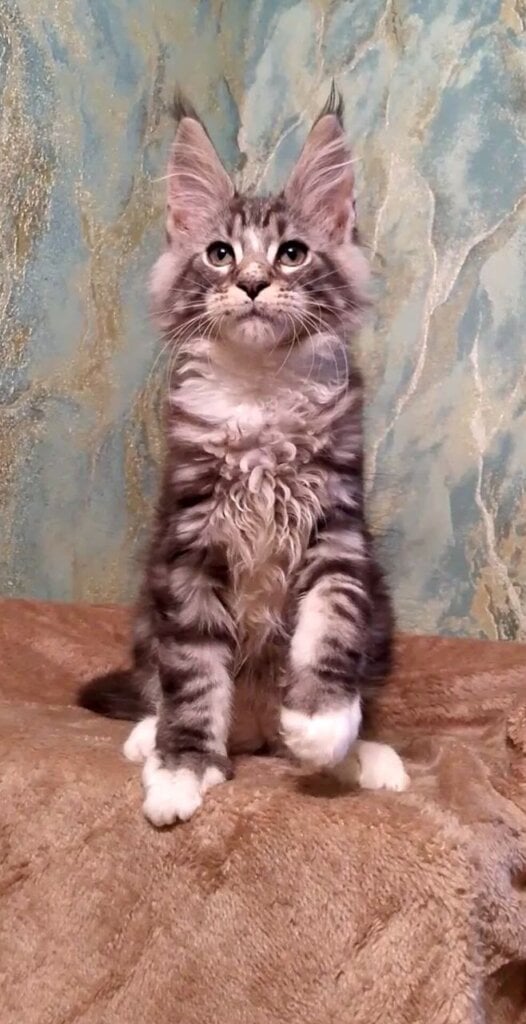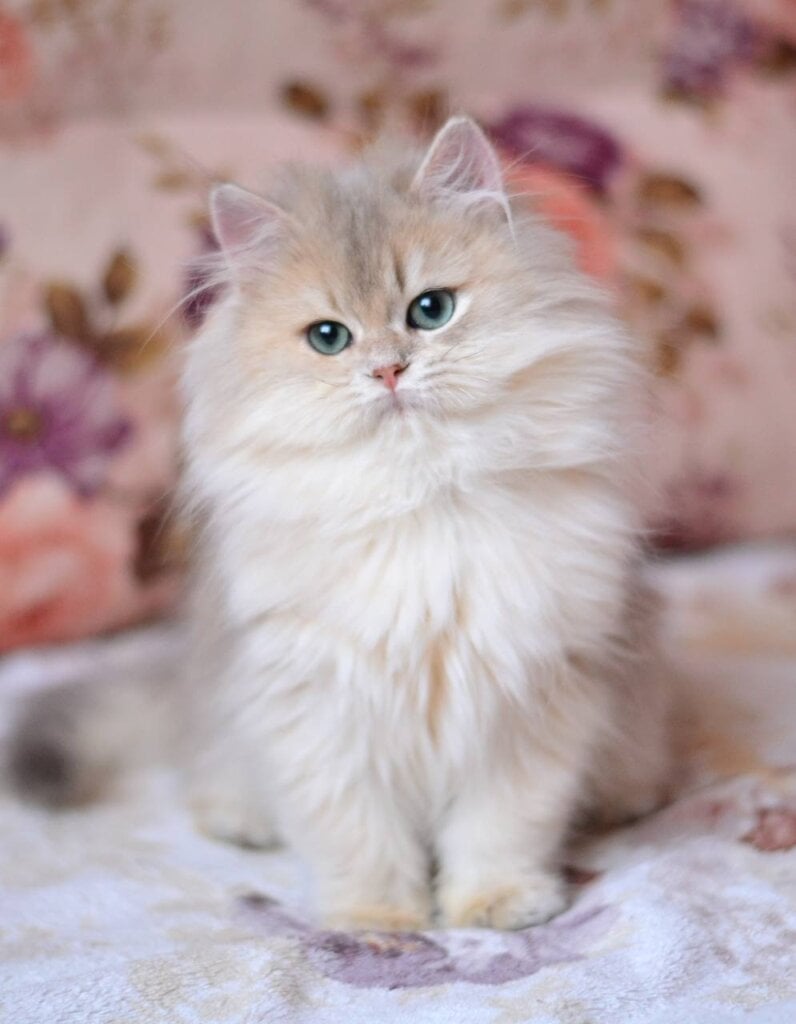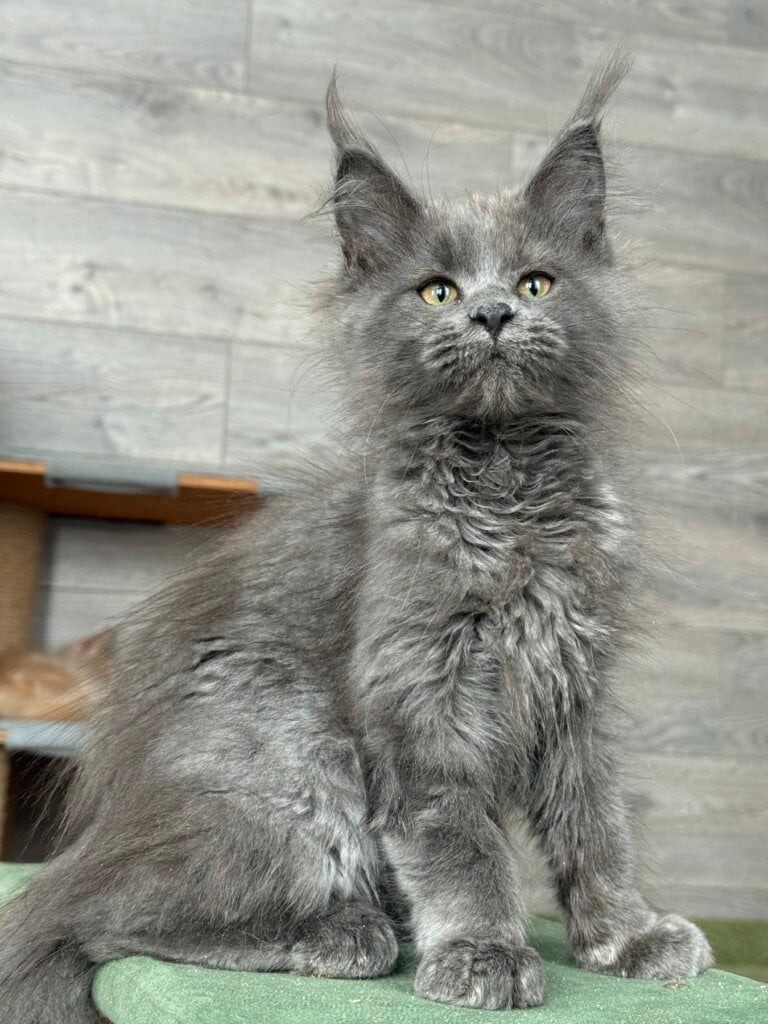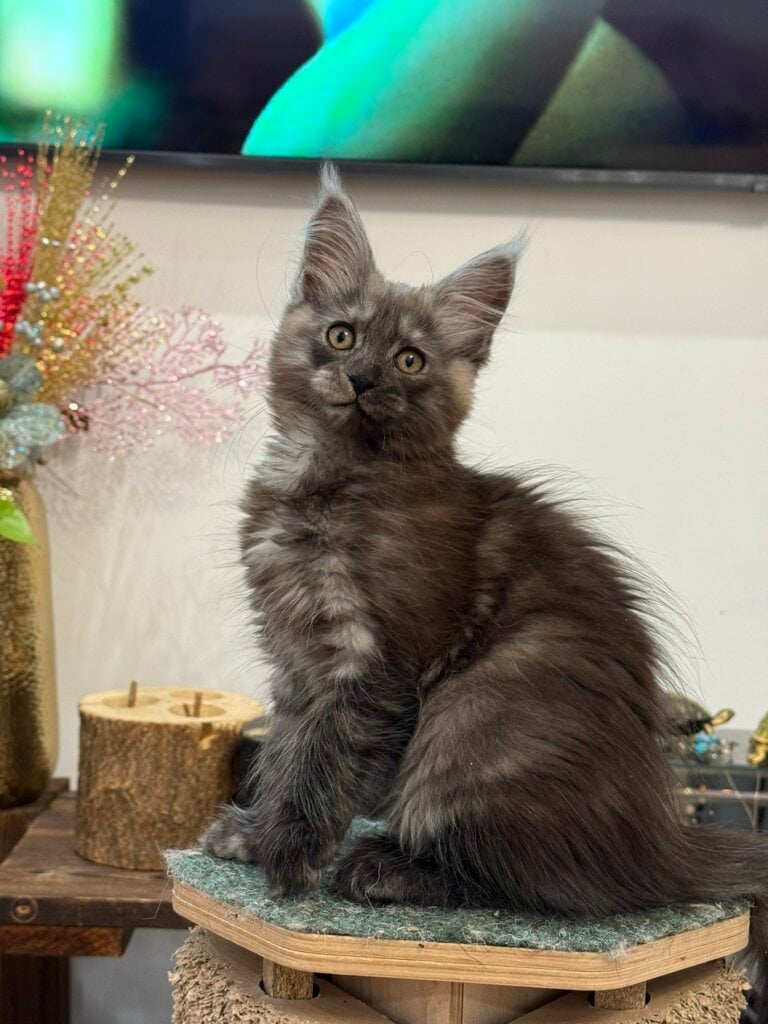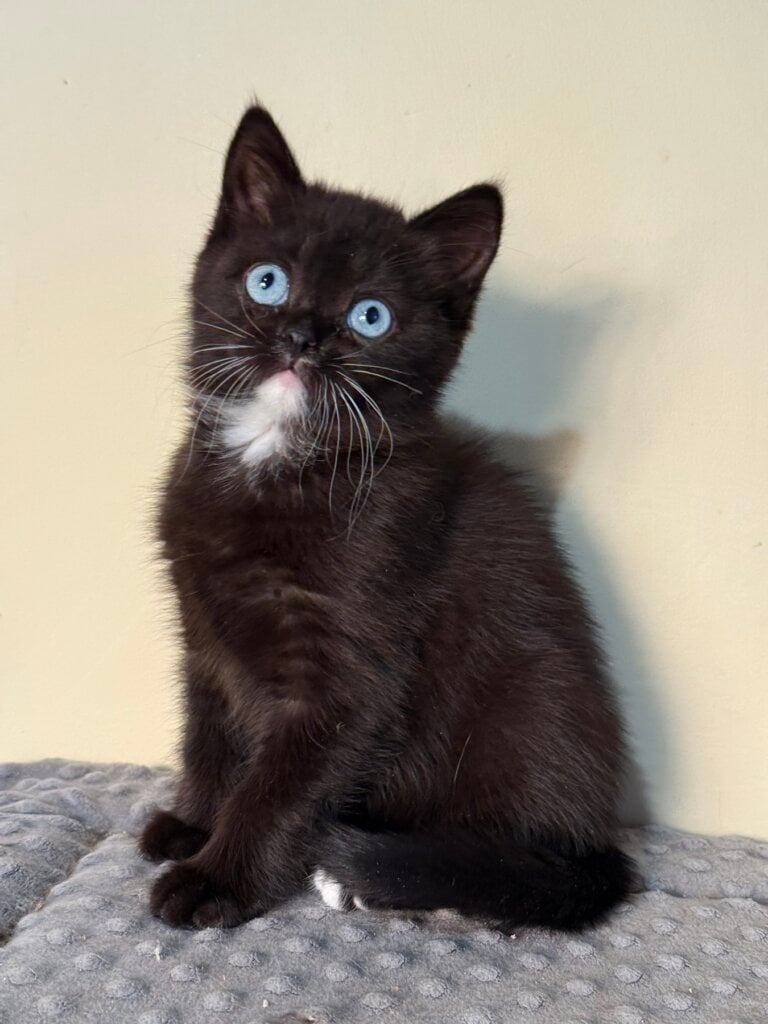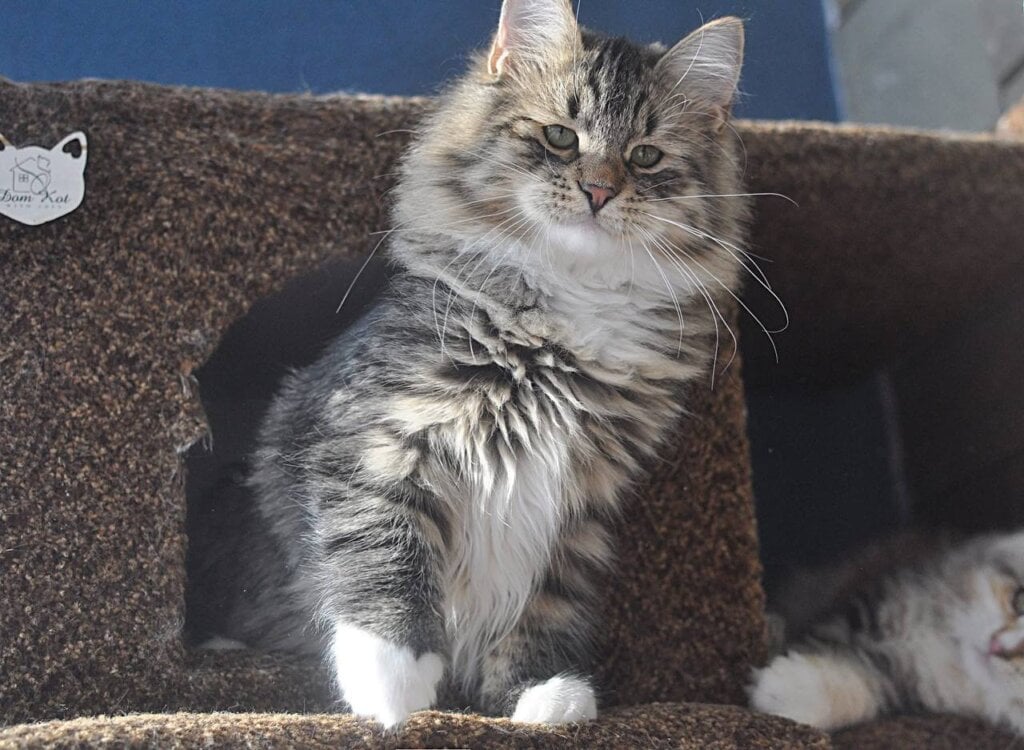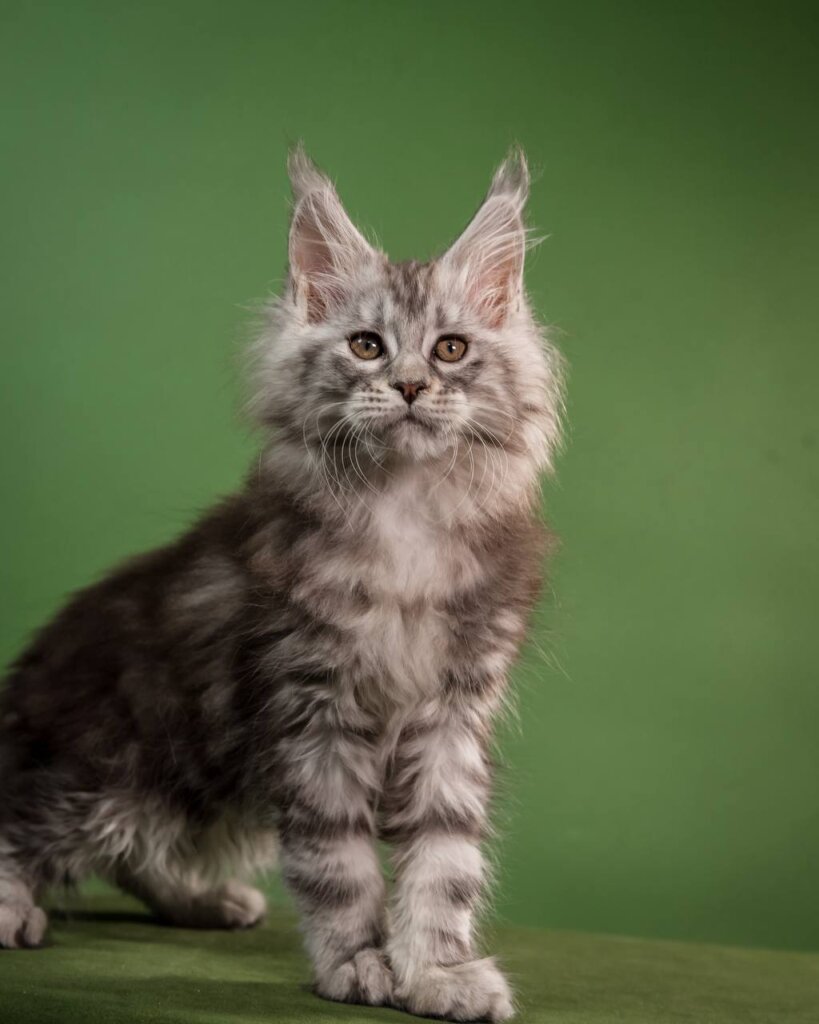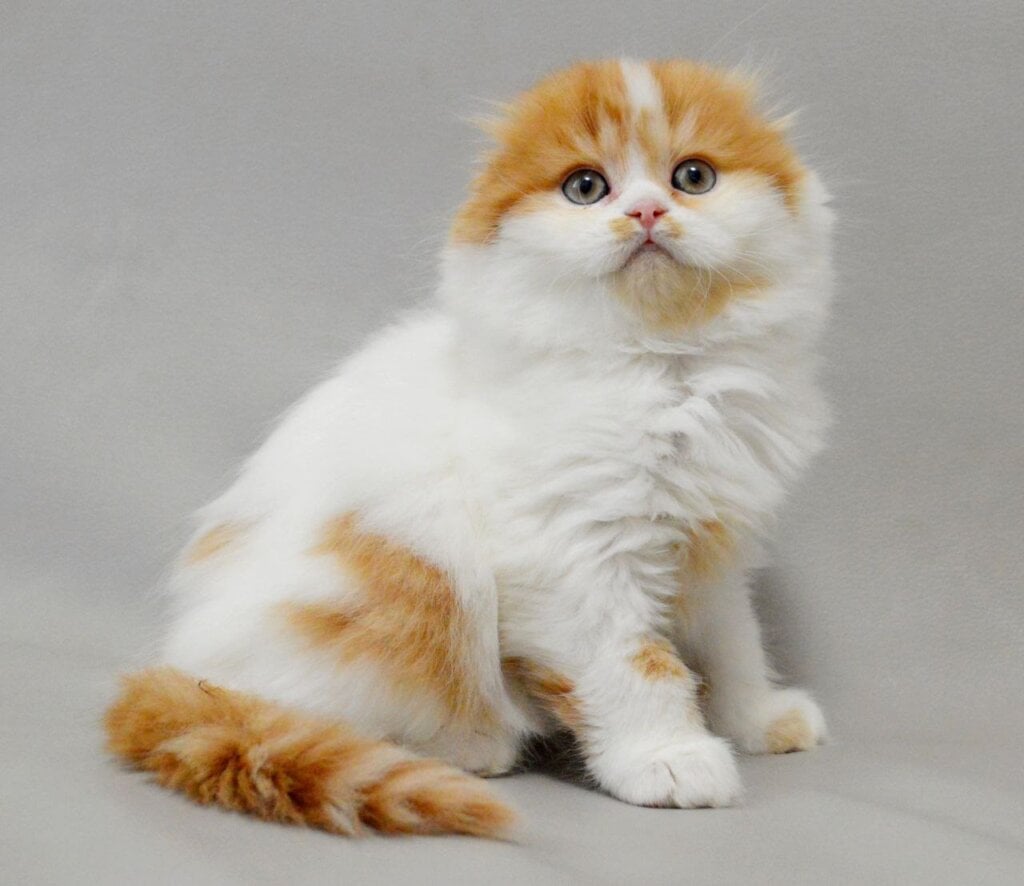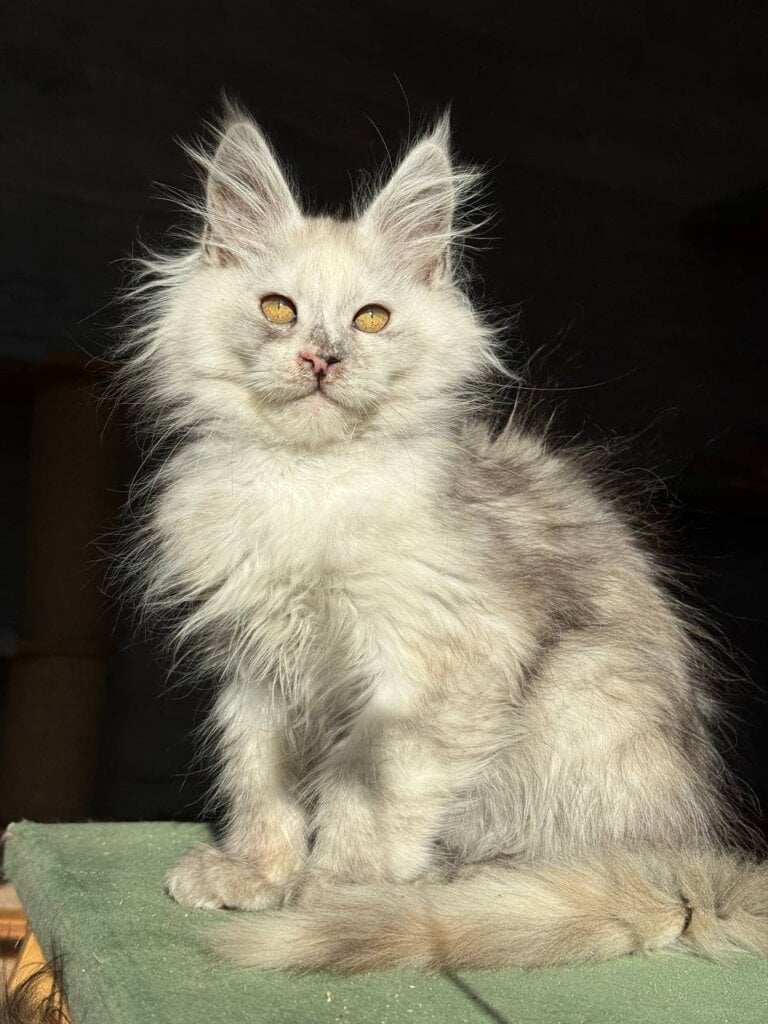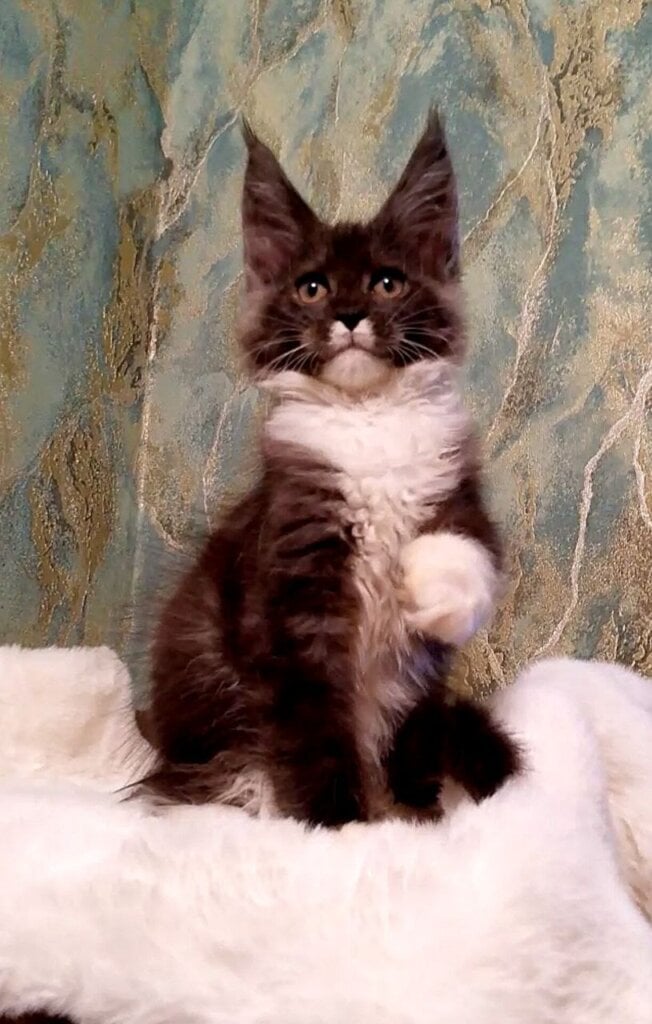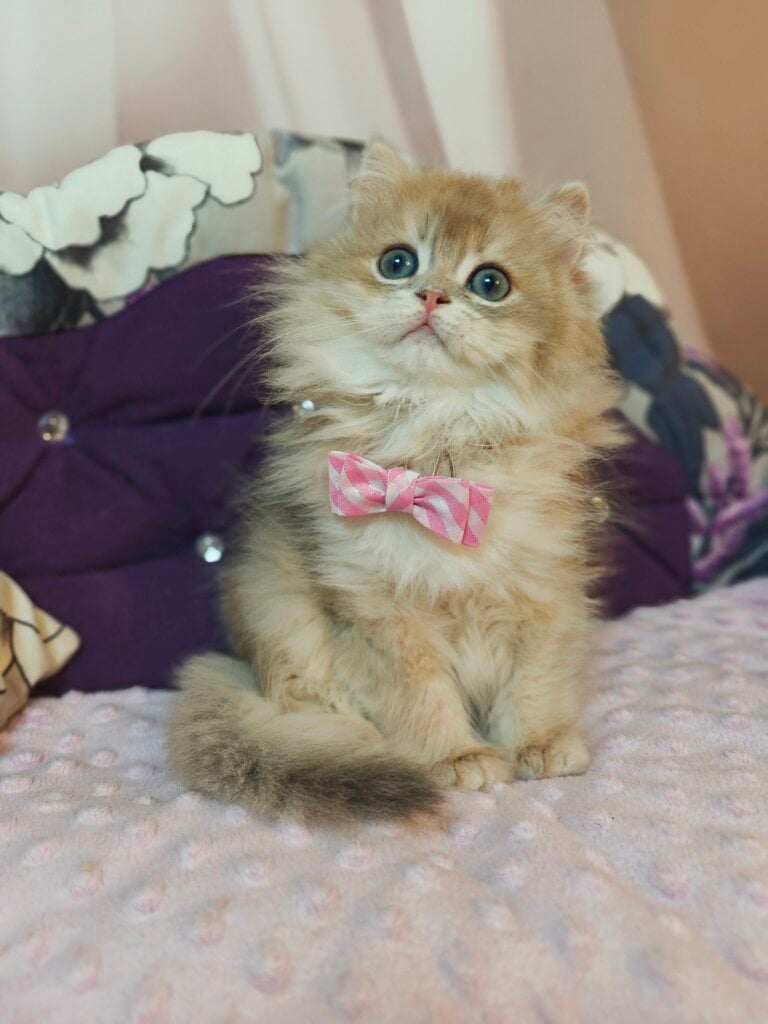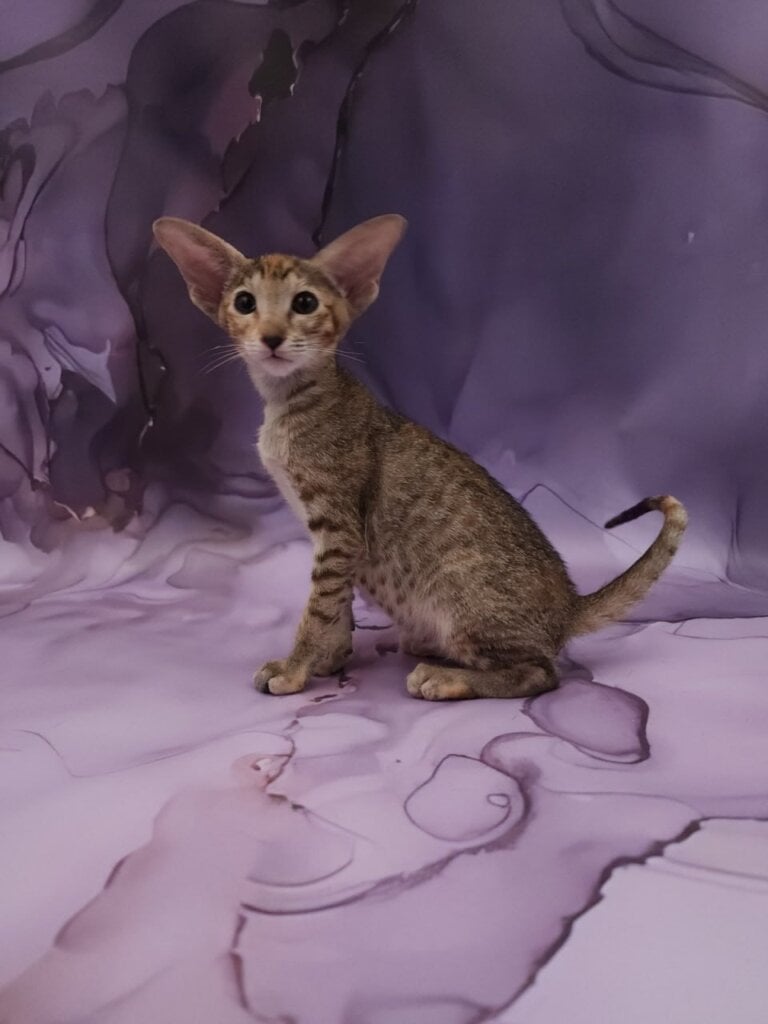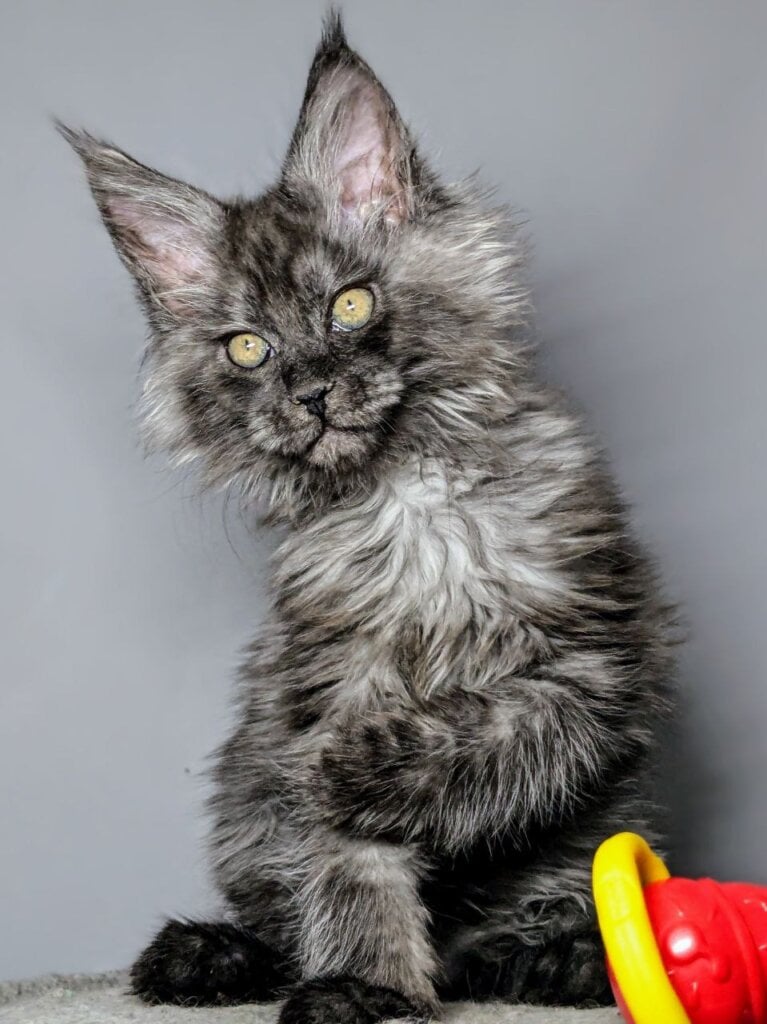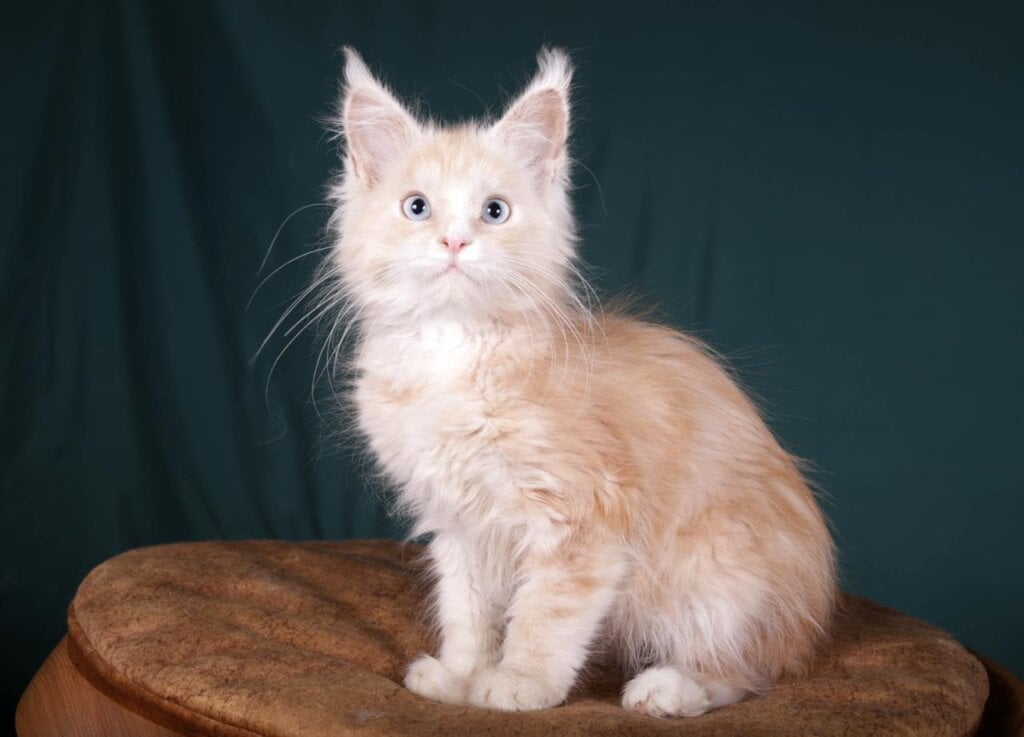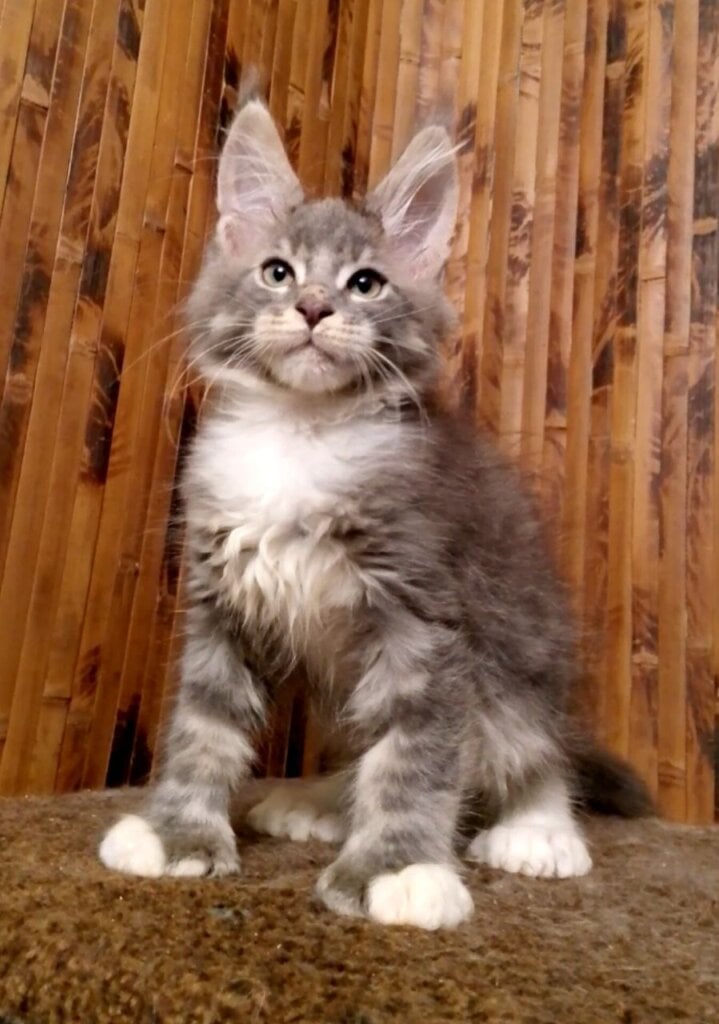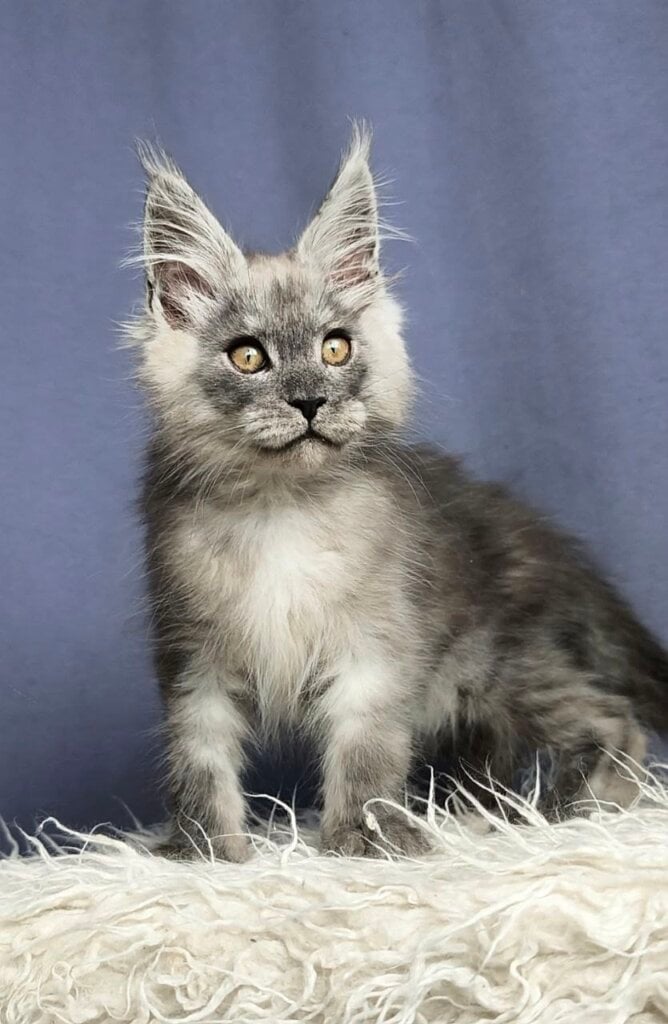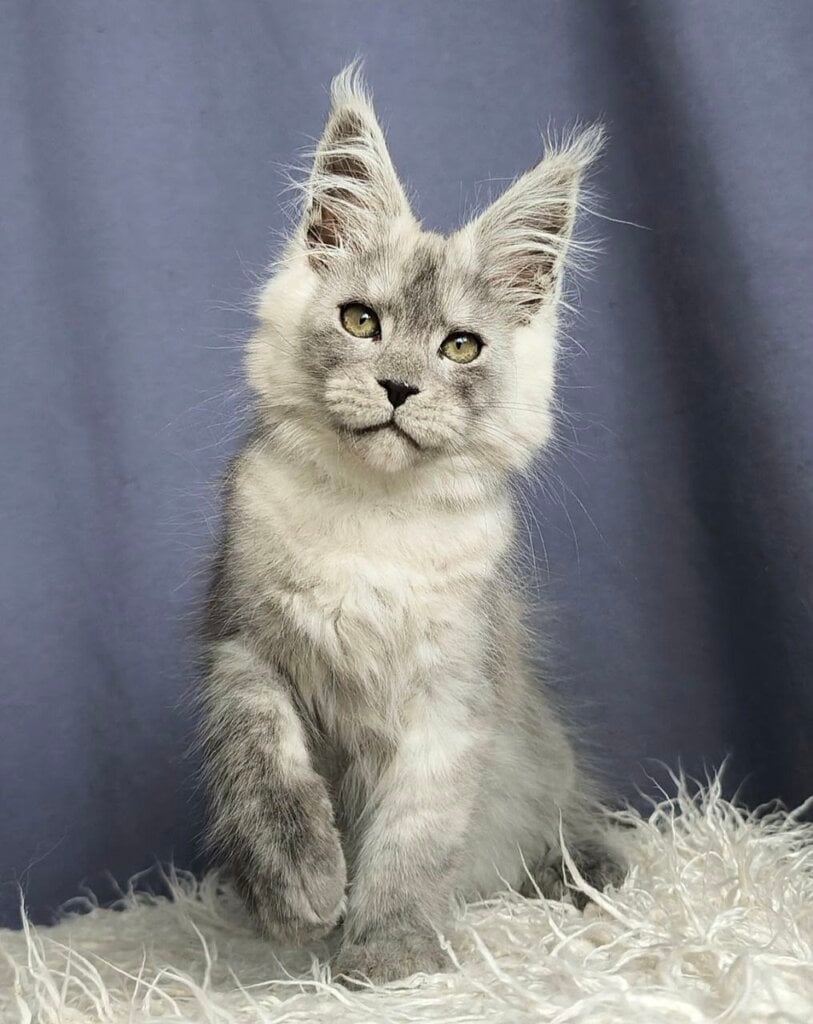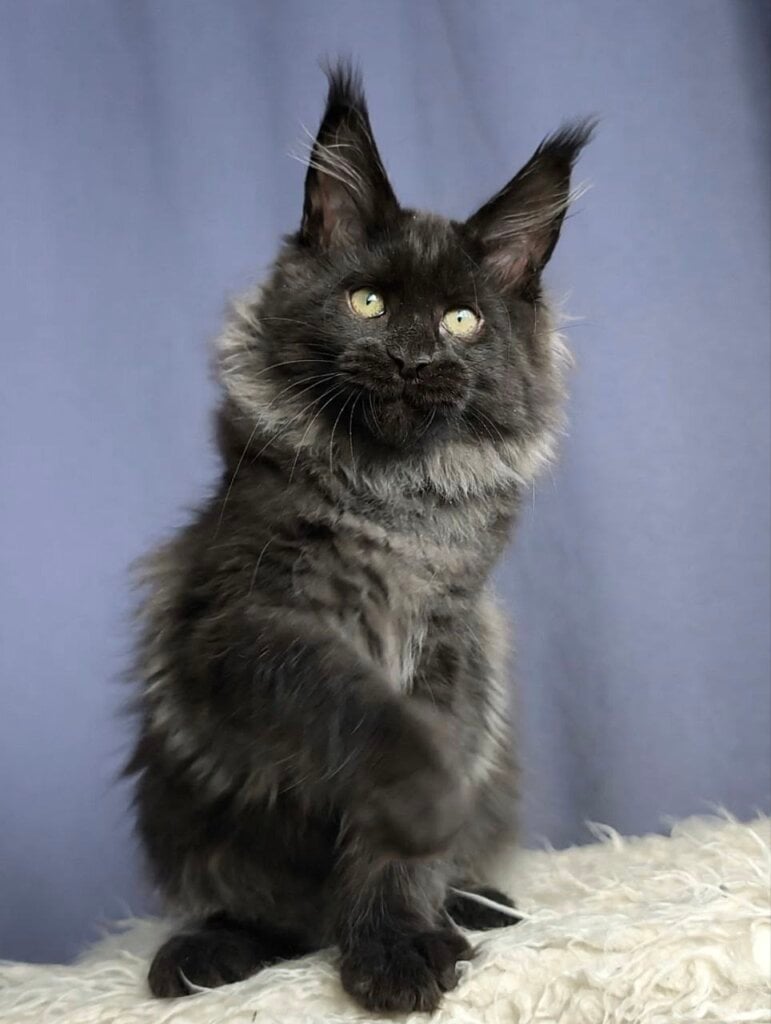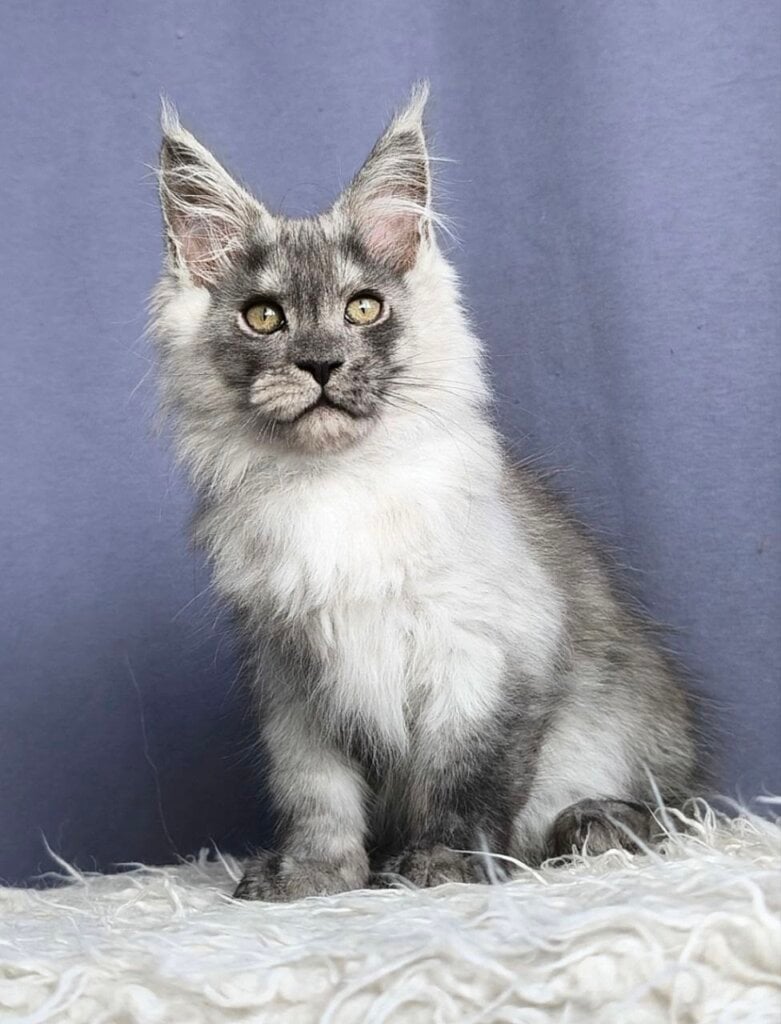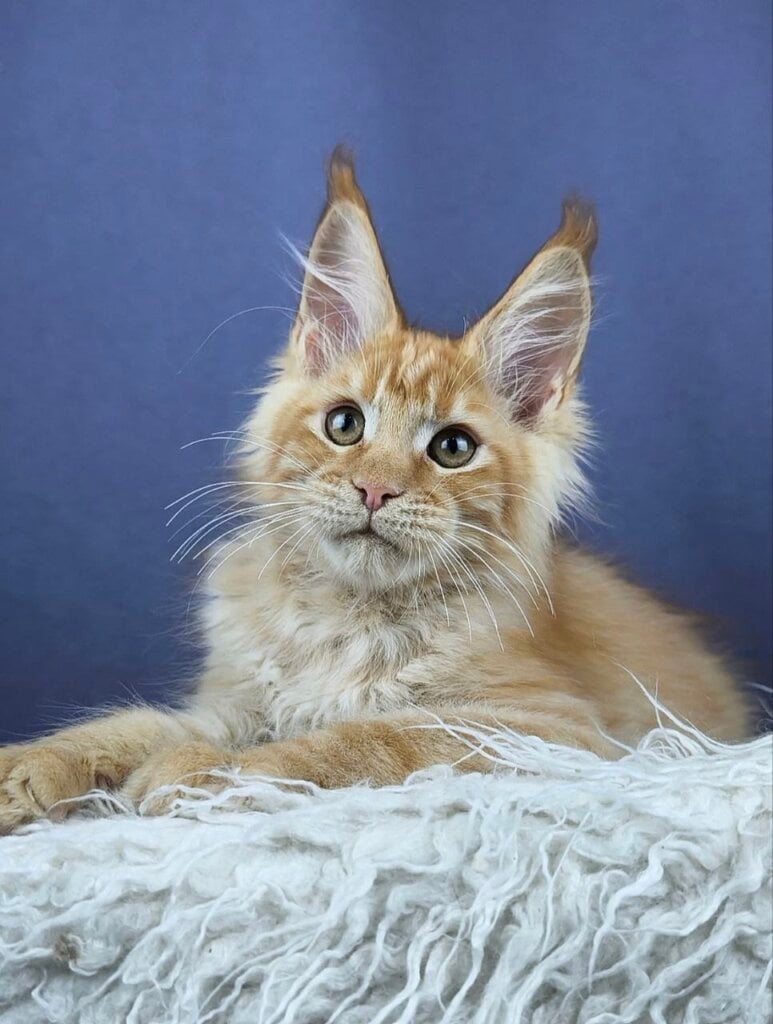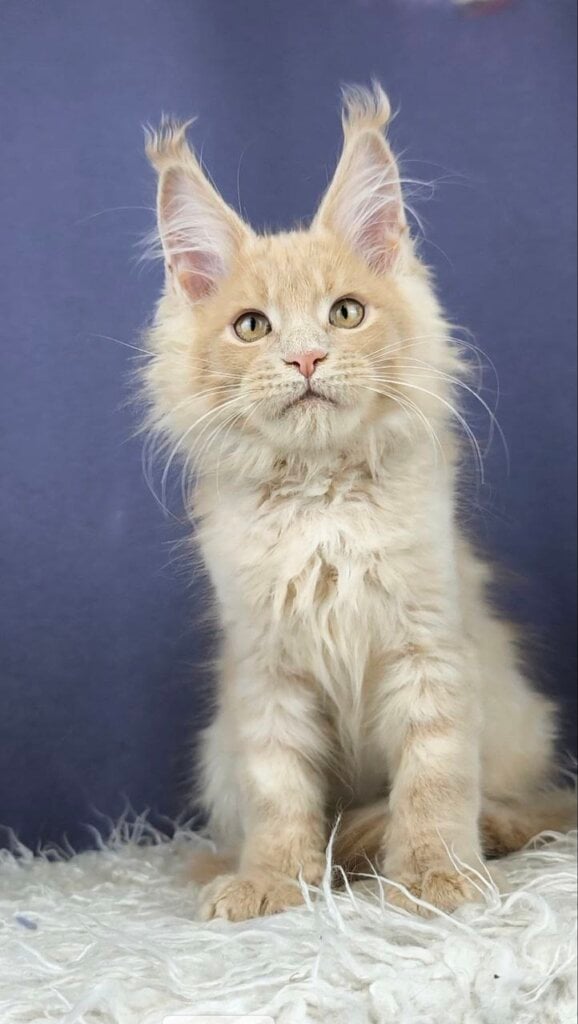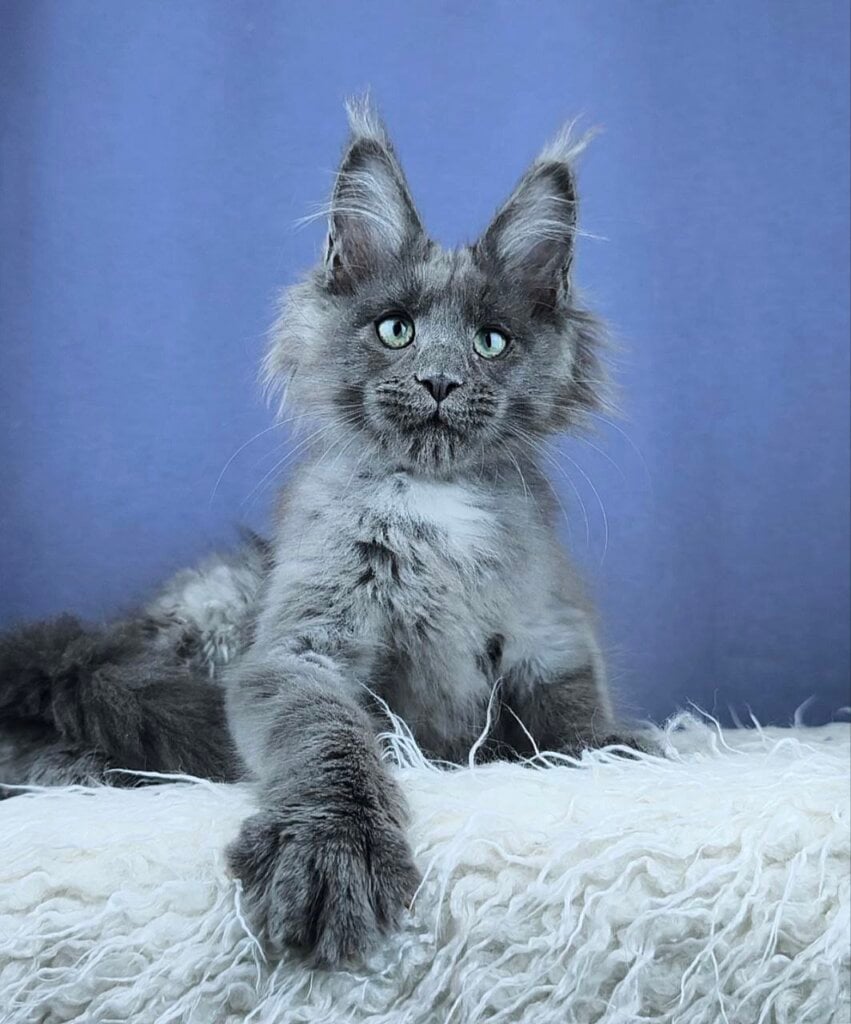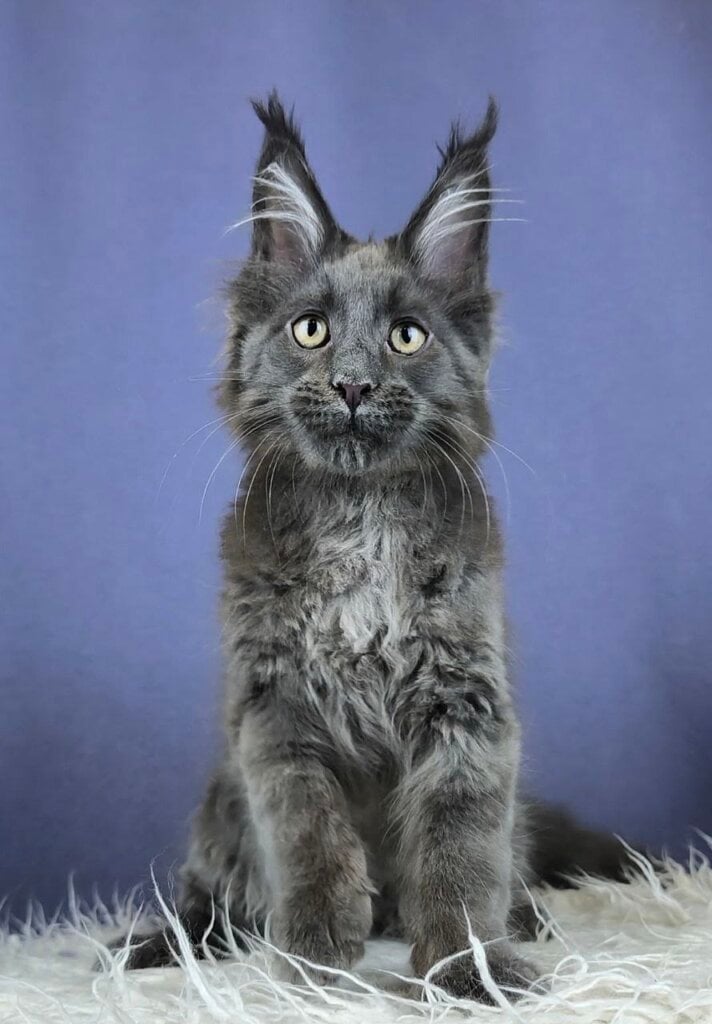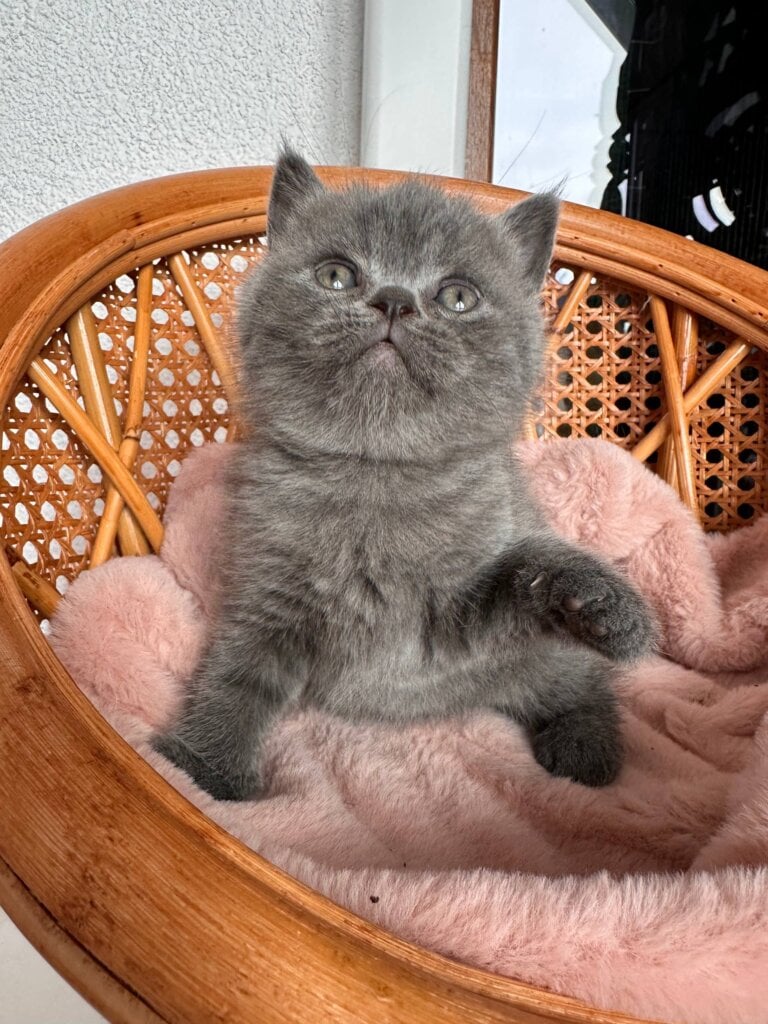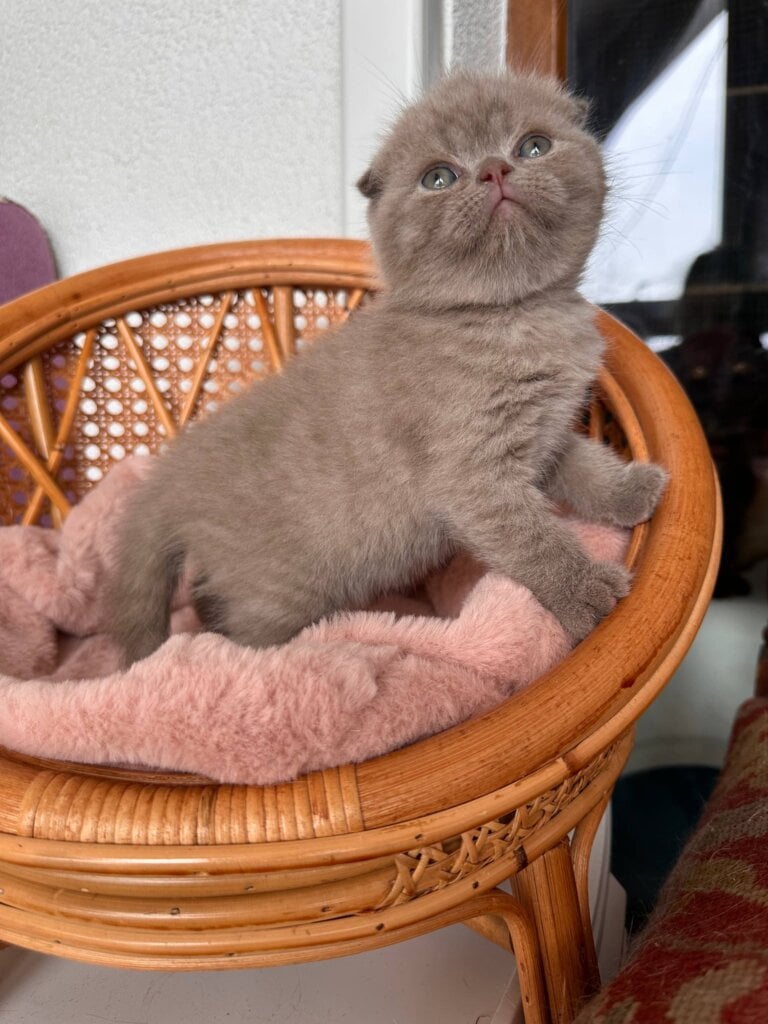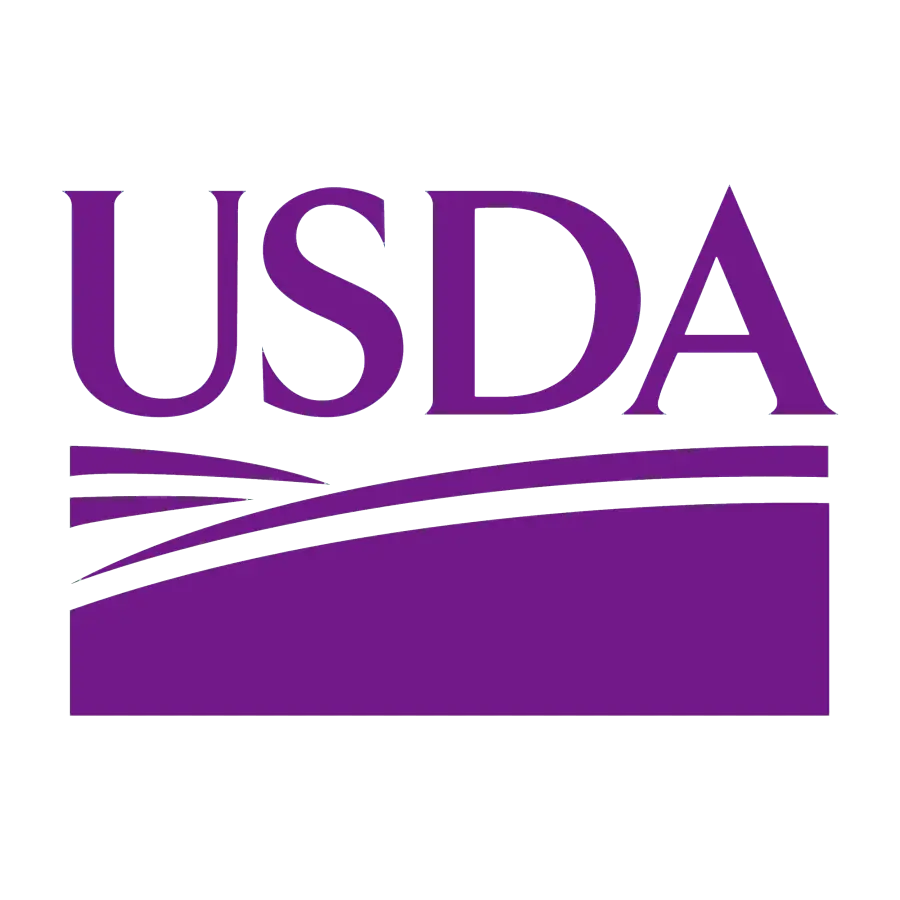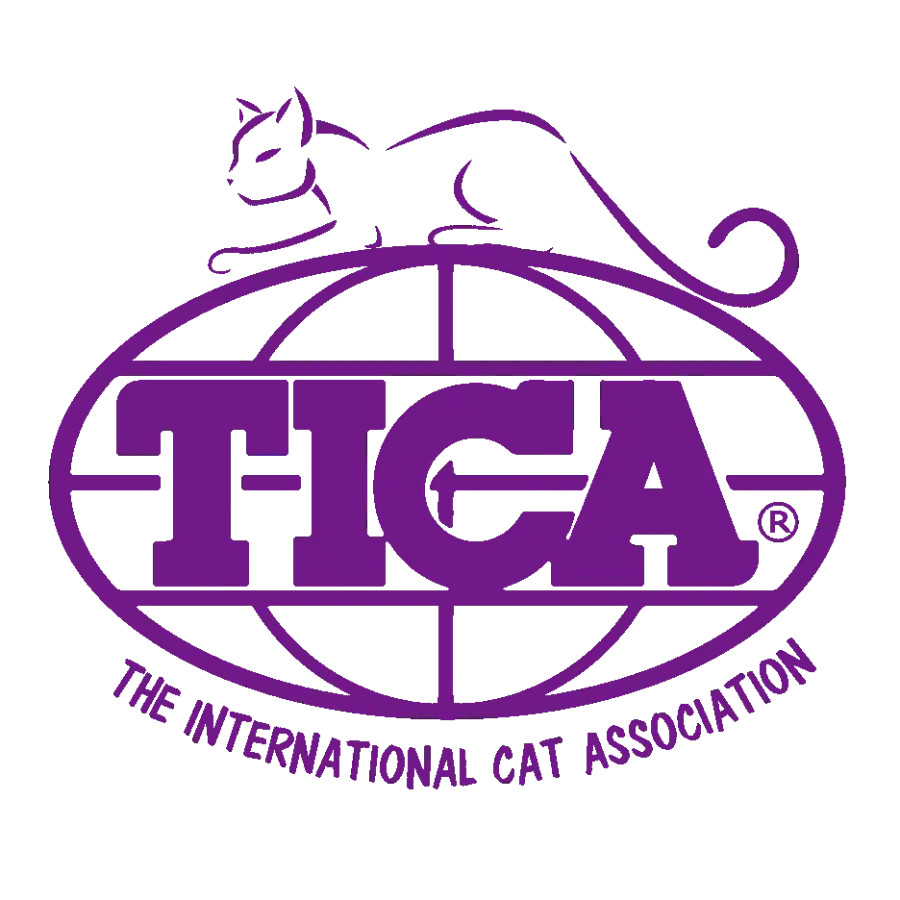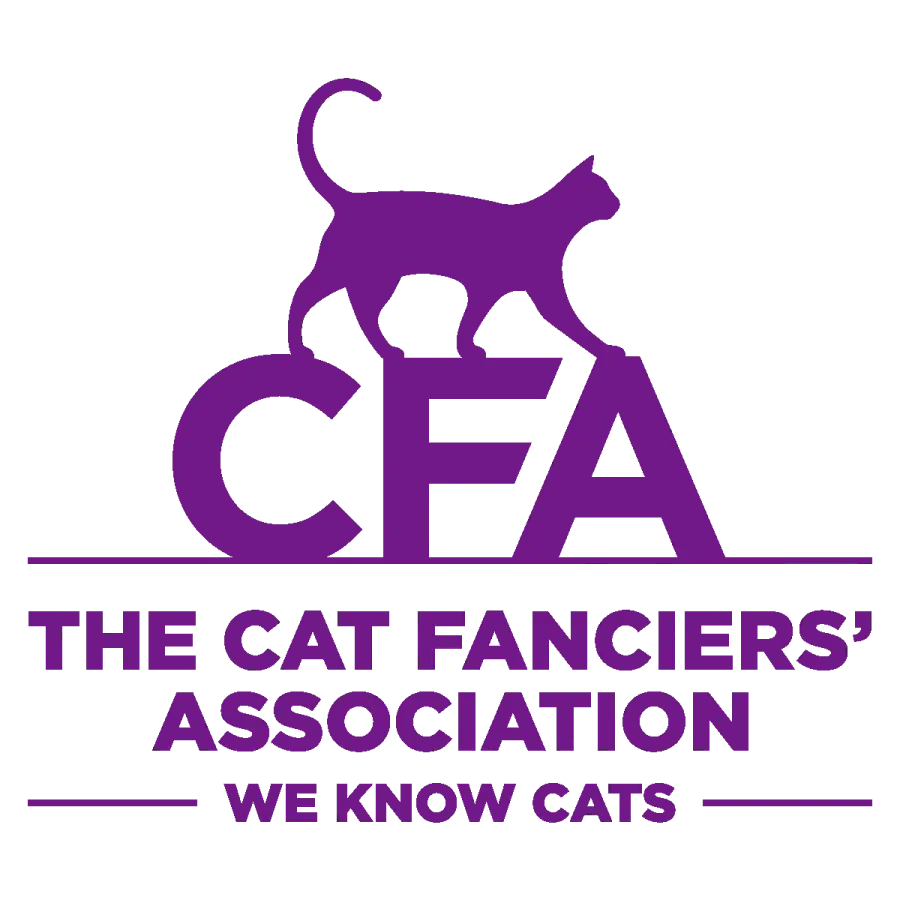- Maine Coon kitten weight for 0-6 months Maine Coons are some of the fastest growing kittens, weighing an average of 2-6 pounds. Addressing any potential concerns Regular wellness visits through this critical development stage helps pets grow strong and healthy.
- Between 6-12 months, Maine Coons will go through puberty and can weigh up to 6-13 pounds. Meeting their new energy demands by carefully shifting their nutrition is key.
- Adult Maine Coons aged 1-5 years can weigh 10-25 pounds based on their genetics, gender, and lifestyle habits. Keeping those four cats on a healthy diet and plenty of exercise is essential for their well-being.
- Senior Maine Coons, 5-years-old and up, can face trouble with sudden weight changes. Meeting their unique nutritional needs at each stage of life promotes a healthy weight and contributes to their health throughout their lives.
- Other factors including genetics, whether they have been spayed/neutered, their activity level, and their gender play a role in a Maine Coon’s weight. Knowing these can help you avoid unrealistic expectations on how big your cat will get.
- Frequent weigh-ins and age-appropriate weight milestones are important to help recognize when a pet may be at risk for weight-related concerns. Early identification and modification can help avoid serious medical conditions associated with overweight and underweight maine coon.
Considered one of the largest domesticated cats, Maine Coons grow slowly and can weigh from 10-25 lbs fully grown. Their weight depends on their age, with kittens averaging 1-2 pounds of growth a month in the first year.
At 3-4 months of age, they usually weigh between 4-6 lbs and reach 8-12 lbs by 6 months. Learning about these developmental milestones is key to helping them grow up healthy.
In this article, we’ll take a look at how Maine Coon weight changes as they age.
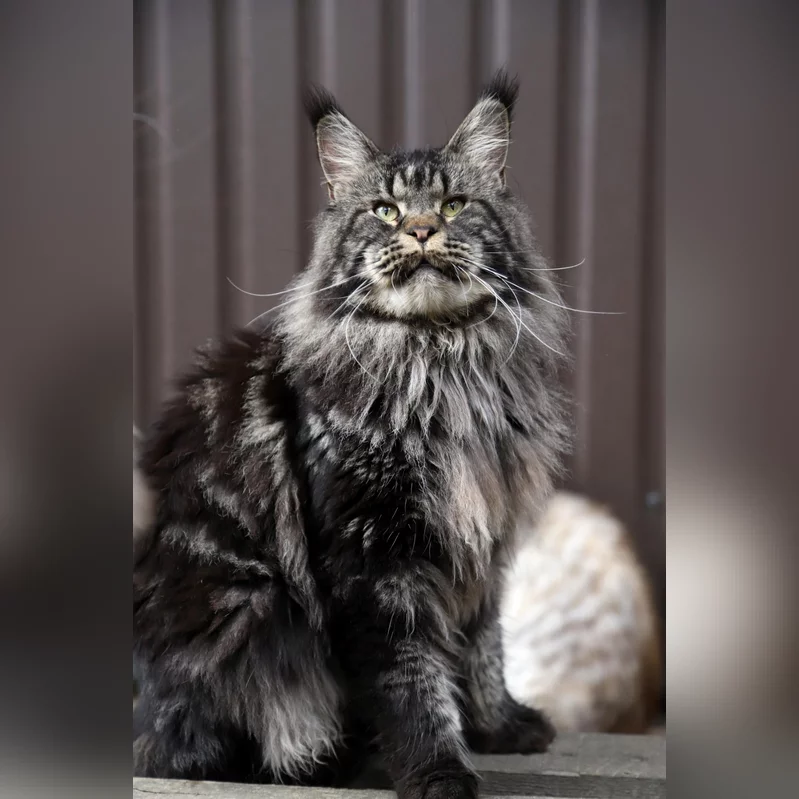
Maine Coon Weight by Age
Maine Coons are famous far and wide for their impressive size and majestic appearance. To keep them healthy and happy, it’s important to know what their weight should be as they go through various stages of life.
Let’s go through their weight milestones by age to give you a better idea of what their weight growth patterns will be like.
1. Kitten Weight: 0-6 Months
The first six months is the most rapid growth period for Maine Coon kittens. During this stage, they can be expected to gain 1 to 2 pounds per month.
So, by 12 weeks of age a healthy kitten could weigh between 3 and 5 lbs. By six months old, males usually weigh from 8 to 12 lbs. Females are typically 6 to 10 pounds.
This stage is one of quick development, larger in both scale and musculature. Frequent veterinary visits and outstanding dietary standards come into play here, as any large changes in weight can be a warning sign of health problems.
2. Young Cat Weight: 6-12 Months
From 6 to 12 months, Maine Coons start developing a more noticeable rib cage and body pack. By the end of this phase, they have usually hit close to 80% of their adult weight.
Males will usually weigh from 12 to 18 pounds, with females typically ranging from 8 to 12 pounds. Their growth rate does taper off a bit from those first months; consistent muscle growth is the name of the game.
Cats require high-quality protein-based diets during this stage specifically to provide the nutrients needed by their rapidly developing bodies.
3. Adult Cat Weight: 1-5 Years
Maine Coons are really special in that they don’t stop growing until they are 4-5 years old. By their first birthday, they are close to their adult weight.
Generally, males weigh 15 to 25 pounds, and females 10 to 15 pounds. They are still filling out muscle-wise and can add weight over time at a healthy rate into the next few years.
This stage is the time for consistent growth and making sure they are up and moving to keep them from getting overweight.
4. Senior Cat Weight: 5+ Years
At 5 years old, Maine Coons are thought to be fully grown. At this age, keeping a close eye on their weight is so important to keep them from becoming overweight, as their activity level may start to decline with age.
Males top out generally about 22-25 pounds, while female seniors range from 12-14 pounds.
5. Growth Stages Overview
Maine Coons start out at only 3 pounds! They are known for their slow and deliberate growth process, with adult males weighing up to 25 pounds, making them unique among most domestic breeds.
While their first year is when they go through the most dramatic changes, Maine Coon size and muscle maturity will not peak for a few years.
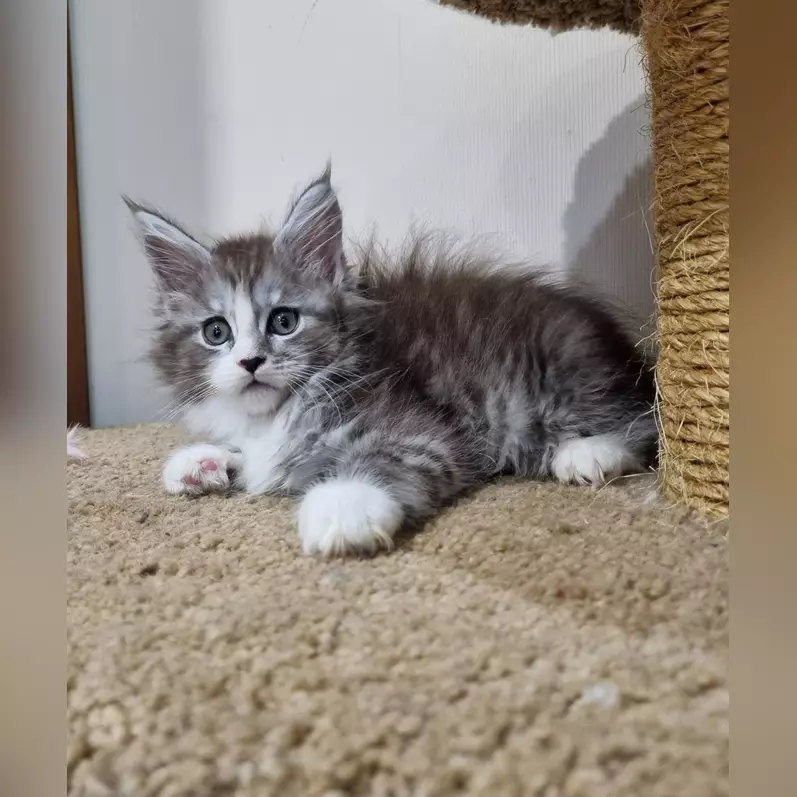
Typical Maine Coon Weight Ranges
Maine Coons are known for their impressive size and gentle temperament, making them one of the most sought-after cat breeds. Their weight is highly variable depending on life stage, nutrition, genetics, and health condition. Being aware of these weight ranges will help you provide your Maine Coon with a healthy development into a powerful feline.
Kittenhood Weight Expectations
In the first few months of life, a Maine Coon kitten will experience a healthy growth spurt. At birth, Maine Coon kittens typically weigh between 3 to 5 ounces, doubling their weight within the first week. At 8 weeks of age though, these kittens tend to fall between 2 and 3 pounds in weight.
After reaching 4 months, monthly gain is about 1-1.5 lbs/month on average. This means that one 4-month-old kitten would be considered underweight at 4 pounds and another healthy at 6. Male kittens tend to develop slightly more rapidly than female kittens. Both sexes do steadily get larger.
Proper nutrition is key during this exciting, energetic stage of life. Their growing bodies require quality, protein-packed food to ensure they develop healthily.
Adolescent Weight Milestones
From 6 months to 1 year old, Maine Coons continue to grow at a slower rate but with steady growth. Most Maine Coons weigh somewhere between 8 to 12 pounds by the time they reach 12 months. Males in general tend to tip the scales toward the higher end of this range.
Unlike most cat breeds, which typically reach their full size by 1 year, Maine Coons continue growing until they are 3 to 5 years old. This long growth period is just part of what sets them apart. During this time, they grow into long, muscular bodies.
In fact, it isn’t unusual for them to grow lengths of 30 inches at this age. During this crucial transition period, providing nutritious meals and fostering an active lifestyle is essential to keeping your cat healthy and at their ideal weight.
Adult Weight Goals
Adult female Maine Coons typically weigh between 8 and 15 pounds. In comparison, females average between 10-15 lbs. Some males are big enough to top 30 pounds and still be within a healthy weight range.
In addition to their substantial weight, they’re quite tall, with adults hitting close to 16 inches in height. They can reach up to almost 40 inches long, including the tail. As Maine Coons are naturally large, it’s especially important to keep an eye on what they eat as obesity can be a real concern.
This means feeding portion-controlled, vet-recommended meals and getting cats involved in more playtime activities. A responsible breeder invests time and effort to ensure long-term health and strong genetics. Their goal is to have Maine Coons reach a certain weight without jeopardizing the health of the cats.
Factors Influencing Maine Coon Weight
Maine Coons are known for their impressive size and sturdy build, but several factors influence their weight as they grow. By understanding these factors, you can do your part to help ensure your cat stays at a healthy weight for life.
Genetic Predisposition
Weight Genetics is one of the biggest factors that influence how much a Maine Coon weighs. Responsible Maine Coon breeders are working to maintain solid genetic lines to reproduce cats that grow at a moderate pace and boast a strong genetic constitution.
A kitten from a good pedigree line has more of a chance to make it to being a healthy adult weight. This weight can often range from 10 to 25 lbs. That’s where genetics throws an even more interesting wrench into the works. Just as some cats can be physically predisposed to smaller, others are predisposed to larger.
We only partner with catteries that breed Maine Coons for proper growth. These catteries only produce healthy, well-proportioned Maine Coons.
Nutritional Needs by Age
Proper nutrition is vital to a Maine Coon’s formative years. Kittens need more protein and fat in their diets to support their fast-growing body during their first year. A healthy Maine Coon kitten of around 6 months should weigh around 6-8 lbs.
To fuel their rapid growth during this period, they need concentrated energy food. Once adults, their caloric needs become calibrated to keep them at their adult weight, usually 15-25 lb. A good, nutritionally balanced diet ensures they get enough energy without the need to overeat.
This is super important for this breed as they are very prone to obesity.
Impact of Neutering/Spaying
Since neutering or spaying usually leads to shifts in hormone levels that impact both metabolism and appetite, this becomes problematic. Without careful attention to food intake, these changes can produce weight gain.
Changing portion sizes and increasing activity level post surgery are important in keeping the weight off as well.
Activity Level and Weight
Maine Coons are energetic, playful and active cats, and consistent exercise is paramount to avoiding obesity. Climbing trees, interactive toys, or regular playtime sessions all help to burn calories and keep their muscles lean and toned.
Even a nutritious and properly portioned diet can still make them gain weight without the right amount of exercise.
Gender Differences in Weight
As a breed, males tend to weigh more than females, with adult males usually weighing between 15 and 25 pounds and females averaging 10-15 pounds. Understanding this normal fluctuation is key to establishing appropriate expectations for their growth patterns as well as weight control.

Nutrition and Diet Impact
Maine Coons have a reputation for their majesty and good health. For them to prosper at each life stage, they require adequate nutrition. A customized, holistic approach to nutrition can make all the difference in achieving and maintaining healthy weight milestones. It reduces the risk of diet-related chronic diseases. Below, we look at how feeding strategies need to change as your Maine Coon matures.
Kitten Feeding Strategies
Maine Coon kittens gain weight dramatically during their first year of life. They require nutrient-dense food to facilitate the development of their bones, muscles, and organs. High-quality kitten-specific formulas are a must. They are a nutrient-dense food source and animal protein and fat, providing the building blocks for healthy development.
Look for food with a minimum of 40% animal protein and no more than 20% fat. Avoid grains and vegetables as fillers, as these can be difficult and inefficient to digest. Regular, smaller feedings – 4 times a day or so – prevent them from getting drained of energy and ensure they’re growing consistently.
Adding more wet food is a big help. It even offers them additional hydration which is especially important for their still-forming kidneys. Make sure the guaranteed analysis matches with the promises in the ingredients. Look for a low carb content, ideally 3% or less to prevent unwanted weight gain.
Adolescent Diet Adjustments
Though Maine Coons may grow a bit less dramatically as they near adolescence, the energy level remains high and their dietary needs are just as crucial. Moving them to a good quality junior or all-life-stages formula can help make sure they’re still getting the nutrients they need.
During this initial stage, learning and practicing portion control will be key. Overfeeding can quickly result in serious obesity, an equally dangerous fate for their massive structure. Monitor their weight carefully. Modify portion amounts accordingly to ensure their caloric intake is within the suggested 24 – 35 kcal per pound of body weight.
Adult Cat Food Choices
Adult Maine Coons require a protein-rich diet. Food based on meat or fish must continue to be the basis of their diet, providing all the amino acids they need, including taurine. Dry kibble can be fed at will and they will learn to eat just once a day by controlling how much they take in.
Balanced feeding helps maintain their weight and prevents conditions like diabetes, which are best avoided through proper nutrition from the start.
Senior Cat Nutritional Needs
Senior Maine Coons do best with easily digestible food. This kind of nutrition delivers moderate levels of fat and protein, which support their maturing muscles and joints. Keeping them well-hydrated by providing wet food is critical and can help keep urinary issues at bay.
Modify their portions to account for their new sedentary lifestyles so that they don’t become overweight, unhealthy couch potatoes in their golden years.
Genetics and Weight Progression
Maine Coon cats are famed for their large size and gentle disposition. To understand their weight progression, we must look at the major influences including genetics, breeding practices, and trends in growth. These factors intertwine to influence the growth of this unusual breed. They can help you understand just how big your kitten is likely to get as they grow.
Understanding Genetic Influence
Genetics influences how big a Maine Coon will get. The parents’ size is usually a pretty accurate predictor of how big the kitten will grow. If both mother and father cats are big, there’s a good chance their kittens will be big as well. After all, size can be hereditary!
Adult male Maine Coons typically weigh 13 to 24 lb. In comparison, female Maine Coons average only 10 to 16 pounds. Besides their environmental conditions, their genetic disposition has a strong influence on their body length, which can grow to up to 40 inches. It dictates their eventual stature, which can grow up to 16 feet long.
For those who may be unaware, it isn’t quite the case that genetics is the only factor. Hormonal factors, including early spaying or neutering before six months of age, can make a minor impact on growth. Though this doesn’t make them smaller, it can lead to a somewhat slimmer physique than non-altered cats.
Breeding and Size Variation
The breeding practices used by Maine Coon breeders play a big role in the size of Maine Coons. Ethical breeders prioritize the health and well-being of their cats. They are very diligent about keeping the genetic line strong and clear of health concerns.
Differences in size are frequently due to selective breeding, as some lines have been purposefully bred for increased size. That said, when you adopt a Maine Coon, inquire about the lineage of the parents, as well as their size. These helpful facts will help you understand how big and heavy your cat might get.
Predicting Growth Patterns
Maine Coons are known for having specific growth stages. Between four and eight weeks of age, kittens start weaning onto solid food, laying the foundation for their fast growth. From three to seven months of age, they are gaining an average of about two pounds a month and approaching key growth milestones in weight.
Consider keeping a Maine Coon’s diet moderately healthy because approximately 10-15% of Maine Coons are predisposed to becoming overweight or obese if overconsumed. With healthy nutrition and proper veterinary care to monitor growth, your puppy will grow smoothly and consistently.
Monitoring Weight and Benchmarks
Maine Coons are known for their tail of a lion, enormous size and sweet disposition. Their unique growth patterns separate them from domesticated cats of other breeds. Keeping an eye on their weight throughout various life stages helps to be sure that they continue maturing into healthy, athletic adults.
By understanding weight benchmarks, regularly tracking progress, and identifying potential issues early, we can provide the best care for these majestic felines.
Regular Weigh-Ins
Regular weigh-ins are another easy method that can help you keep track of your Maine Coon’s development. Monitoring them weekly throughout the kitten stage lets us see consistent weight gain – which is a good sign they’re healthy and gaining the developmental milestones they need.
A healthy male full-sized Maine Coon typically weighs 6 ounces at birth. In comparison, females weigh in a few ounces less at around 5 oz. By the time they’re one week old, you should be seeing males at about 10 ounces and females at about 9 ounces. As they get older, monthly weigh-ins are adequate, particularly since it is during their first year that growth is most dramatic.
Using a baby scale or scale designed for pets ensures the most accurate reading. It is helpful to maintain a growth chart. It allows us to establish baselines and monitor for changes, so we can modify feeding or husbandry practices as needed.
When in doubt, check with your veterinarian – they can help you make sense of it all and guide you through the process.
Age-Specific Weight Charts
Knowing the approximate weight benchmarks by age gives you a helpful starting point. By that one month mark, the males typically weigh 1.8 pounds, and the females 1.6 pounds. At this age, there is still a disparity between males (8-13lbs at 4-6months) and females (2-9lbs).
By 5 years of age, mature males usually are 18-25 lbs and females are generally 11-14 lbs. Laying down the benchmarks really illustrates the Maine Coon’s impressive size. Indeed, several of these felines don’t become fully grown until the age of 4 years.
A wholesome diet that is high in quality animal protein and moderate in healthy fat encourages muscle growth and replenishes energy requirements. You can provide dry food from time to time. Ensure the majority of their meals are wet recipes or raw diets that feature nutritious ingredients.
Limit dietary fat to less than 20% of total caloric intake to help prevent obesity.
Recognizing Weight Issues
Weight problems in Maine Coons can develop as both overweight and underweight conditions. Kittens not achieving growth benchmarks will need more calorically-dense diet or a customized feeding plan.
Conversely, too much weight gain is usually due to overfeeding or poor-quality diet. Early warning signs are trouble jumping, less active, or a potbellied look. Regular weigh-ins and a digital growth chart help easily identify these issues so they can be addressed immediately.
Health Issues Related to Weight
Weight management is important for Maine Coons. Their huge size and distinctive growth patterns render them vulnerable to a host of weight-related health problems. Ensuring your Maine Coon maintains an ideal weight involves understanding the risks of both being overweight and underweight, as well as recognizing common health conditions tied to weight imbalances.
Risks of Being Overweight
Being overweight is a major health issue for Maine Coons, leaving them at risk for a variety of dangerous conditions. Obesity usually occurs when pets are fed a poor diet. It is due to eating too much processed human food, which lacks the balanced nutrition that they require.
Foods ultra-high in fat – greater than 20% – can pack on pounds at an alarmingly rapid rate. Obese Maine Coons can get a potbellied appearance. Fattening puts on a layer of blubber that makes it tough to even run your hands along her side to feel those ribs.
Hypothyroidism is another condition that contributes to weight gain. As a result, this condition slows their metabolism considerably, making it more difficult for them to burn off calories. Like many breeds, Maine Coons require a lot of exercise to stay fit and healthy.
Without it, they can quickly develop joint issues, diabetes and increased strain on their hearts. Offer regular play time, climbing structures, and interactive toys to keep them busy and help them achieve a healthy weight.
Risks of Being Underweight
Though rarer, being underweight is an important concern that may indicate serious and unmet health needs. If your Maine Coon isn’t receiving sufficient animal-based protein, it will begin to consume more food and thus overeat. This leads to stunted or uneven growth and sometimes severe malnourishment.
By their first birthday, Maine Coons should reach about 80% of their adult weight. If they start lagging behind on these weight targets, it can be an early indication of digestive trouble or other health concerns.
Providing a high-quality, protein-rich diet ensures they receive sufficient nutrients for healthy growth. Preventing nutritional deficiencies caused by unhealthy food promotes healthy development, as malnourishment can lead to weight loss or stunted growth.
Common Health Conditions
These weight imbalances do not only produce harmful side effects, they can create – or worsen – widespread health issues. For people with arthritis, obesity leads to poor outcomes, in part because excess weight places additional pressure on their joints.
Profoundly underweight cats are at risk of developing impaired immune function, and in turn, can become more susceptible to infectious disease. Whether through increased mass or overall pain, both situations emphasize the necessity of serving Maine Coons nutritionally complete diets formulated specifically to suit their distinct requirements.
Maintaining a Healthy Weight
Helping Maine Coon cats maintain a healthy weight will help them lead longer, healthier lives. Their massive size, often reaching 40 inches in length and 16 inches in height, due to their being in breds for show, adds to their impressiveness. Such grand size comes with a significant caveat.
Adult males normally weigh 13-25 lbs, females 10-16.5 lbs. This variation requires careful portion control, diet, and activity level to keep their body in overall balance, allowing them to thrive.
Balanced Diet Tips
Healthy Maine Coons need a nutrient-rich diet to sustain their rapid growth and high energy levels. Just as any other dog breed, they have the same basic nutritional needs for proteins, healthy fats and essential vitamins. Because of their size and activity, they require bigger portions, which can drive up feeding costs a bit.
High-quality food with real meat as the first ingredient, like Purina Pro Plan, is optimal for supporting muscle mass and encouraging energy. Wet food is an excellent addition, offering the benefit of hydration and variety. When selecting feed, look for fillers that contribute inessential calories, such as corn or soy.
For younger kittens, particularly during the first four months when their weight triples, nutrition is even more important. At three months of age, males generally weigh 4-5 lbs and females 3.5-5 lbs. Having a healthy diet at this period of time lays the basis for them to grow consistently without being too heavy.
Exercise and Play Ideas
Increased physical activity is an important part of preventing weight-related health issues. Maine Coons are serious about fun! To encourage them to play, have engaging toys on hand – such as feather wands or laser pointers.
Taking just 15-20 minutes to play a couple of times a day will allow them to burn off extra calories and keep their energy in check. Tree climbing and scratching posts promote physical activity by stimulating your cat’s tree-climbing instincts. Try puzzle feeders to stimulate their brains while managing their caloric consumption.
Portion Control Strategies
It serves as an important reminder that portion control is equally as important as diet quality. Overfeeding often leads to one of the most common causes of obesity, as research has found 60% of domestic cats in the U.S. Are overweight.
Calculating portion sizes is essential. Use a kitchen scale to weigh your food to the nearest gram, based on your dog’s weight and activity level. These procedures decrease energy needs a bit, so revise portions immediately after spaying or neutering.
Providing food at specific times instead of allowing the cat to free feed helps keep calories in check, too.
Comparing to Other Cat Breeds
Among cat breeds, Maine Coons are particularly notable for their size. Their unusual growth patterns further sets them apart from other cat breeds. Their hefty weight and powerful frame are more than just interesting features, but rather defining attributes that set them apart.
Here’s a more detailed look at how they stack up against other breeds with regard to size and growth rate.
Size Differences Explained
Maine Coons, especially the males, tend to be larger and heavier than any other domestic cat. Adult male Maine Coons usually weigh between 13 to 18 pounds, with some males topping this range. Compared to male Maine Coons, females tend to weigh less than their male counterparts, typically weighing 8-12 pounds.
It is easy to observe the size difference in Maine Coons as the breed demonstrates a significant natural size variance. Most male Maine Coons will weigh more than their female counterparts.
Mixed Maine Coons are often much smaller than their purebred counterparts. This variation is the result of genetic variation, as mutts may receive qualities from the smaller cat breeds. A mixed Maine Coon will weigh about 12 pounds on average.
In comparison, a purebred is considered overweight once he tops 18 pounds! This points to the need for knowing a breed’s history when trying to predict its size.
A weight contest with other popular breeds on one side – Siamese, Persian, Abyssinian, you name it – Maine Coons are no doubt heftier. Siamese cats are slender and lightweight with slender frames ranging from 6 to 12 pounds. In comparison, Maine Coons are known for their large and muscular builds.
Growth Rate Comparisons
Unlike most cat breeds that reach their full size by 12 to 18 months, Maine Coons have a notably extended growth period. They can keep growing and maturing until they reach 3-4 years of age, which is pretty amazing. Throughout this period, Maine Coons will go through spurts of rapid growth in which the cat suddenly gains weight or height.
All of these factors mean that, despite their recognizable features, each Maine Coon has its own growth pattern. To give you an idea, here are some typical ages for Maine Coons to reach various accomplishments.
At 4-5 months they typically weigh around 2.2-3.5 pounds. When kittens are 7 to 9 months their weight can go up to about 5.3 to 8.4 lbs. By the time they get to 1-2 years, their weight can be anywhere from 12 to 15 pounds.
This slower pace of growth is a highlight of their special development to that of breeds which mature at a quicker rate.
